




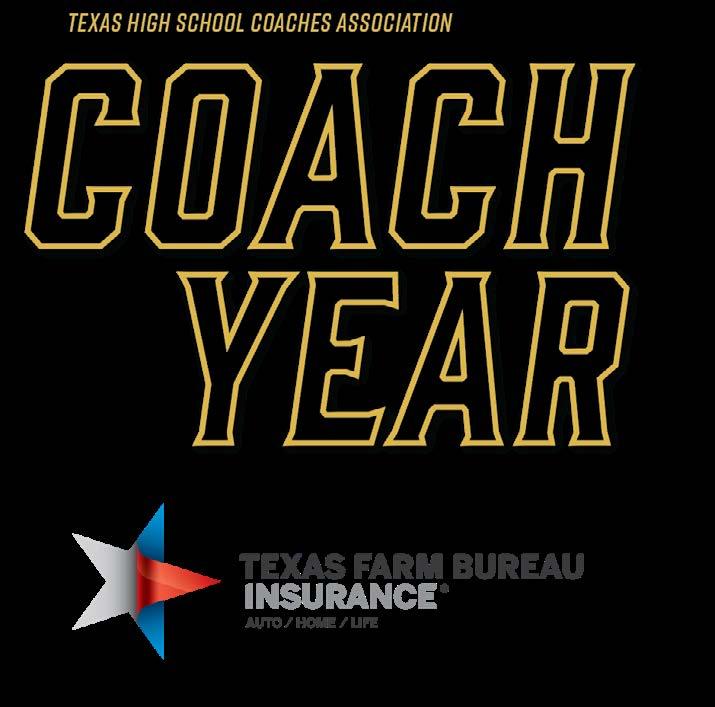
THSCA's 2024-2025 coach of the year honorees drew sanders | vandegrift football misty fletcher-remmers | wimberley volleyball






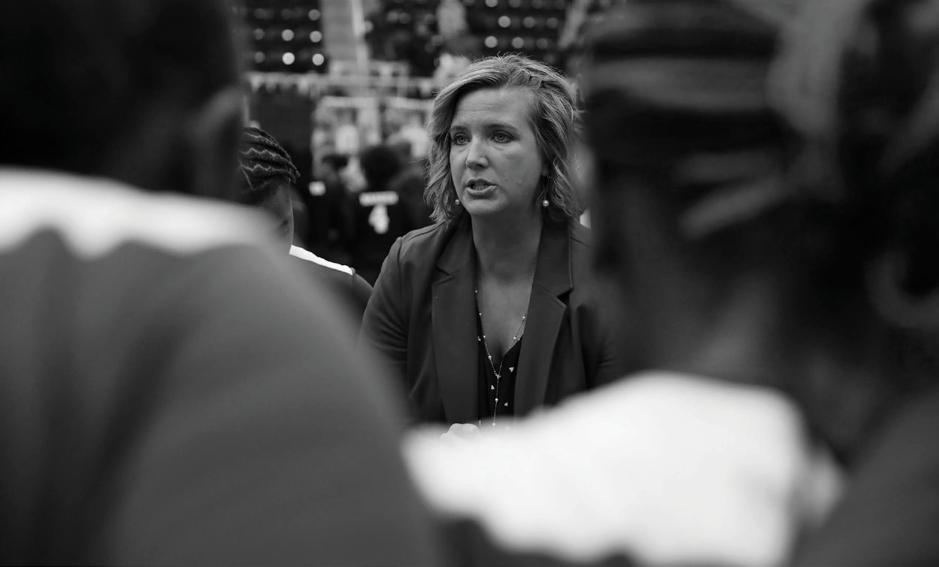

I S











THSCA's 2024-2025 coach of the year honorees drew sanders | vandegrift football misty fletcher-remmers | wimberley volleyball








I S





Your questions and concerns about your health matter. Ascension Seton care teams are here to empower you and your family by listening, respecting your experiences, and creating a care plan that works for you. You deserve to be seen and heard. That‘s why our doors are always open to provide health and healing, for the whole you — body, mind and spirit. To us, you are more than a patient. And together, we are a community.
TEXAS COACH - (ISSN 0040-4241) - Copyright 2025 Texas High School Coaches’ Association, Inc.
PUBLISHER
TEXAS HIGH SCHOOL COACHES ASSOCIATION, INC.
PUBLISHING/EDITORIAL OFFICES:
2553 N INTERSTATE 35 FRONTAGE RD SAN MARCOS, TX 78666-5924
web: www.thsca.com
Subscriptions: Annual subscription to TEXAS COACH for members of the Texas High School Coaches Association is $20.00, which is included in the THSCA membership dues. For non-members, digital versions of the magazine may be accessed for free at www.thsca.com. Single copies are $5.00 per current volume. TEXAS COACH is published monthly except in June, July, and August and is dated the first of the publication month, although it is mailed around the 10th of the publication month.
Change of address: Request for change of address must reach us 30 days before the date of issue with which it is to take effect. Duplicate copies cannot be sent to replace those undelivered through failure to send advance notice. Email change of address to info@thsca.com or members can go online and make the change in your member portal profile at www.thsca.com.
Periodicals Postage Paid at San Marcos, TX & additional entries. “All rights reserved”. (USPS 540-600).
POSTMASTER Send address change to:
TEXAS HIGH SCHOOL COACHES ASSOCIATION P.O. DRAWER 1138
SAN MARCOS, TX 78667-1138
Printed by Integ in Austin, Texas.
EXECUTIVE DIRECTOR
JOE MARTIN joemartin@thsca.com
ASSISTANT EXECUTIVE DIRECTOR
GLEN WEST glenwest@thsca.com
Chief Operating Officer of THSCA BRIAN POLK brianpolk@thsca.com
Chief Operating Officer of THSCEF
LIBBY PACHECO libbypacheco@thsca.com
Director of Publications & Technology
BECKY ADAMS beckyadams@thsca.com
Director of Administration
MARGARET BEYER margaretbeyer@thsca.com
Director of Media & Marketing
ANNA BUCKALEW annabuckalew@thsca.com
Director of Exhibits & Sponsorships MOLLY FLY mollyfly@thsca.com
Director of Membership
ALLIE HERRMANN allieherrmann@thsca.com
Director of Finance & Accounting
KEVIN SMITH kevinsmith@thsca.com
Director of Hotels & Hospitality CHELSEA MILLER chelseamiller@thsca.com
Director of Public Relations & Awards
TYLER WATTS tylerwatts@thsca.com




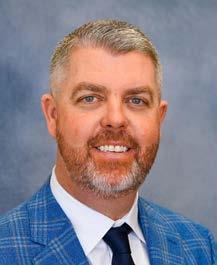
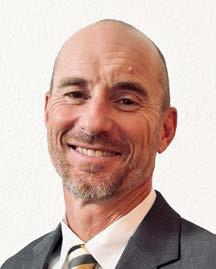
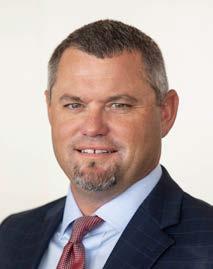

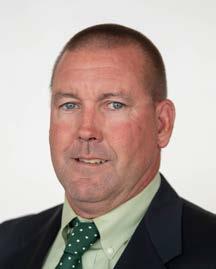

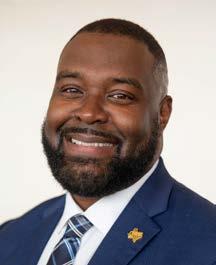



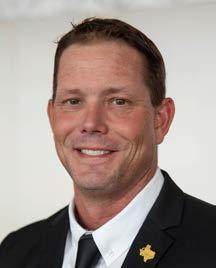

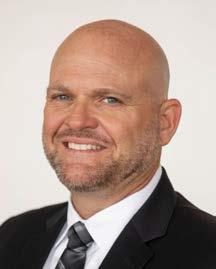
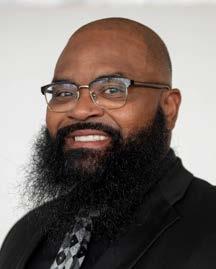
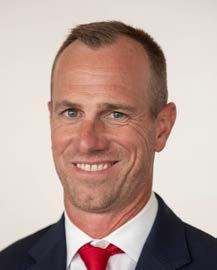


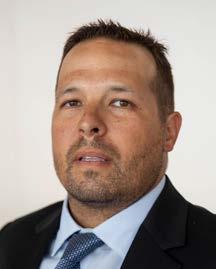
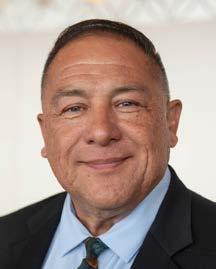
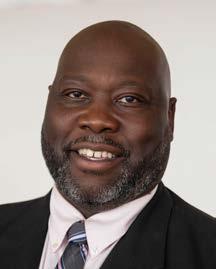



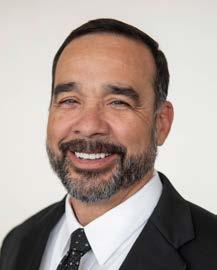
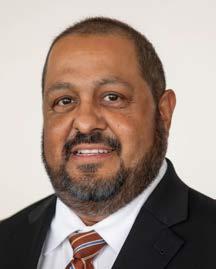

Finance: Brent Davis, Chip Darden, Sterling Doty, Clint Hartman, Marvin Sedberry Jr., *John Snelson, Drew Sanders
Bylaws: Chris Cochran, *B.J. Gotte, Joe Hubbard, Shaun McDowell, Leo Mireles, Rachel Torvik
Ethics: *LaQueisha Dickerson, Clint Fuller, Don Hyde, Casey Pearce, Marcus Shavers
Policy: Ben Bitner, Josh Gibson, Brian Randle, *Aaron Roan, Jason Richards, Heather Woodman
Magazine: Andy Cavalier, *Jeff Ellison, Reuben Farias, Juan Morales, Mike Pry, Eddie Salas
Hall of Honor: *Dub Farris, Charlie Johnston, Gary Joseph, Allen Wilson
DIRECTOR-ELECTS
*Denotes Chair
R1 – Jason Richards, Frenship Memorial; R2 – Mike Reed, Gordon; 3 – Marcus Shavers, North Forney; R4 – Frank Maldonado, Midland Legacy; R5 – Rick LaFavers, Ridge Point; R6 – Clint Fuller, Kilgore; R7 – David Sanchez, Laredo United; R8 – Tony Salazar, Westlake
1ST ALTERNATES
R1 – Aaron Dunnam, Dumas; R2 – Mitch Ables, Hawley; R3 – Antonio Wiley, Coppell; R4 – Vance Washington, Permian; R5 – Travis Reeve, El Campo; R6 – Shane Tolleson, Waxahachie; R7 – JC Ramirez Jr., Veterans Memorial; R8 – Amanda Wolf-Schramm, Smithson Valley
2nd ALTERNATES
R1 – Rodney Vincent, Shallowater; R2 – Jake Escobar, Comanche; R3 – Riley Dodge, Southlake Carroll; R4 – Thad Fortune, Midland High; R5 – Kevin Berneathy, La Porte; R6 – Doug Wendel, Midlothian; R7 – Mark Chester, Gregory Portland; R8 – Galen Zimmerman, Dripping Springs




ATHLETIC DIRECTORS
R-1 Mike Meeks, Lubbock
R-2 Jake Escobar, Comanche
R-3 Jeff Smith, Prosper
R-4 Jaime Boswell, Andrews
R-5 Lance Carter, Katy
R-6 Don Drake, Ennis
R-7 Mike Troutman, Sinton
R-8 Becky Craig, Leander
ATHLETIC TRAINERS
R-1 Isaac Wimberley, Lubbock Cooper
R-2 Billy Abbe, Abilene
R-3 *Mike Harrison, Allen
R-4 Steven Ortiz, Midland Lee
R-5 Aimee Williams, Fort Bend
R-6 Greg Goerig, Midlothian
R-7 Benjamin Garcia, Harlingen
R-8 Chad Hennessey, Georgetown
At-Large Ally Furey, Dell Children's
AQUATICS
R-1 Dakota Tefertiller, Lubbock
R-2 Casey Pacheco, Abl. Wylie
R-3 Tony Arbogast, Flower Mound
R-4 Jessica Minjarez, Pecos
R-5 Ty Halford, Clear Creek
R-6 Dan Marlin, Waco Midway
R-7 Yvonne Moran, Harlingen CISD
R-8 Kari Brothers, Northside
At-Large *Michael Waldmann, Andrews
BASEBALL
R-1 Jed Anderson, Canyon
R-2 Allen McGee, Graham
R-3 Mike Smith, Lake Ridge
R-4 *Juan Orozco, EP Coronado
R-5 Jacob Hooker, El Campo
R-6 Matthew Anderson, Franklin
R-7 Adrian Alaniz, Sinton
R-8 Tom Alfieri, SA Churchill
BOYS BASKETBALL
R-1 Tony Wagner, Estacado
R-2 Justin Reese, Abilene
R-3 Matt Wester, Plano East
R-4 Jason Archibald, Wink
R-5 David Montano, Stafford
R-6 Colten Gober, Venus
R-7 Brandon Bourg, Flour Bluff
R-8 Andrew Brewer, Alamo Heights
At-Large *C.J. Villegas, Frenship Memorial
GIRLS BASKETBALL
R-1 Tate Lombard, Canyon
R-2 *Kenni Patton, Electra
R-3 Monesha Allen, Denton Ryan
R-4 Cynthia Hernandez, Burges
R-5 Christy Westbrooks, Atascocita
R-6 Marcus Willis, La Vega
R-7 Ashley McHugh, Sinton
R-8 Christina Camacho, Antonian
At-Large Brooke Brittain, Mansfield
BOYS CROSS COUNTRY
R-1 Jarrod Thomas, Littlefield
R-2 Glenn Griffin, Holliday
R-3 Landon Wren, Coppell
R-4 Alonzo Samaniego, Presidio
R-6 John Capron, Midway
R-7 *John (Eric) Miller, CC Veterans Mem.
R-8 Kelly Thompson, Leander Rouse
GIRLS CROSS COUNTRY
R-1 Luke Buckner, Shallowater
R-2 Loy Triana, Burkburnet
R-3 Zach Morgan, Rock Hill
R-4 Corina Marrufo, Del Valle
R-5 Josh Hill, Cy-Fair
R-6 Edward DeLaCruz, Waxahachie
R-7 Daniel De La Rosa, McAllen
R-8 *Rachel Freeman, SA Reagan
6-Man Josh Stanaland, Jayton
R-1 Jason Richards, Muleshoe
R-2 Kyle Atwood, Holliday
R-3 *Joe Castillo, Frisco Centennial
R-4 Thad Fortune, Midland
R-5 Rick LaFavers, Ridge Point
R-6 Sam Wells, Troup
R-7 Travis Chrisman, Ingleside
R-8 Brad Molder, New Braunfels
BOYS GOLF
R-1 Justin Wilborn, Lubbock Cooper
R-2 Mitch Aston, Abilene Cooper
R-3 Owen Clifton, Glen Rose
R-4 Mark Burgen, Andrews
R-5 Jason Jezek, FB Clements
R-7 Celso Gonzalez, McAllen Mem.
R-8 Michael Rome, Westlake
At-Large Paige Martin, Southlake
GIRLS GOLF
R-3 Kerry Gabel, FM Marcus
R-4 Shelbye Hill, Odessa
R-5 *Angela Chancellor, Kingwood Park
R-6 Liz Gray, Springhill
R-7 Jennifer Rangel, McAllen
R-8 Russell Aki, SA Reagan
At-Large Brent McCuiston, Alamo Heights
BOYS SOCCER
R-2 Tony Vu, San Angleo Central
R-3 Alexi Upton, Royce City
R-5 *Ben Powell, Bellville
R-6 Hector Peralez, Kilgore
R-7 Julian Robles, Harl. South
R-8 Juan Romero, SA Southwest
At-Large Jason Meekins, Katy Jordan
GIRLS SOCCER
R-2 Alexis Mosqueda-Walker, Brownwood
R-3 Kelly Thompson, Allen
R-4 Stephanie Sazo, EP Del Valle
R-5 *Evelyn Torres, Ridge Point
R-6 Andrew Procell, Corsicana
R-7 Matthew Kaiser, McAllen Memorial
R-8 Corey Elrod, Leander Rouse
SOFTBALL
R-1 Styler Haddock, Canyon
R-2 Jenna Aguirre, Abilene
R-3 *Kathy Schoettle, Allen
R-4 Carol Vaughn, Andrews
R-5 Katie Roberts, Brenham
R-6 Jordan Williams, Midway
R-7 Audra Troutman, Sinton
At-Large Jason Keller, Shiner
TENNIS
R-1 Darby Norman, Canyon Randall
R-2 *Carrie Castleberry, Vernon
R-3 Sylvia Sims, Frisco Heritage
R-4 Ray Perez, Midland Lee
R-5 Daniel Marshall, A&M Consol.
R-7 Eddie Marquez, Roma
R-8 Adnrew Duong, Comal Canyon
At-Large David DeLeon, Canyon
BOYS TRACK & FIELD
R-1 Jon Murphy, Stratford
R-2 Levi Keith, Abilene Cooper
R-3 *Janson Head, Denton Ryan
R-4 Brien Burchett, Greenwood
R-5 Jason Haddock, Wharton
R-6 Josh Rankin, Longview
R-7 Bob Bechtold, McAllen
R-8 Daryl Jones, Taylor
GIRLS TRACK & FIELD
R-1 Crista Jones, Lub. Monterey
R-2 *Jeremiah Butchee, Stephenville
R-3 Ashley Broom, Sunnyvale
R-4 Robert Ontiveroz, Monahans
R-5 Shelton Ervin, Summer Creek
R-6 Jordan Johnson, Midway
R-7 Stacy Zamzow, Goliad
R-8 Jen McHugh, SA Reagan
VOLLEYBALL
R-1 Kelly Lozada, Lubbock Monterey
R-2 Shay Fanning, Stephenville
R-3 Jennifer Chandler, Northwest
R-4 Heather Archibald, Wink
R-5 *Jenny Adcock, Stratford
R-6 Arden Johnson, Troup
R-7 Ariana Bermea-Mendoze, Alexander
R-8 Kayla Allen, Anderson
At-Large Kristina Finger, D'Hanis
BOYS WRESTLING
R-1 Dalton Clear, Canyon
R-2 Brock Payne, Vernon
R-3 *Kyle Stevens, Anna
R-4 Oscar Norez, EP Montwood
R-5 Vinnie Lowe, Katy
R-6 Collin Stroner, Midlothian Heritage
R-7 Donald "Ed" Arvin, CC Veterans Mem.
R-8 David Burdick, Vista Ridge
GIRLS WRESTLING
R-1 Tyler Frausto, Canyon
R-3 Tiffany Mangini, Flower Mound
R-4 Stephen Scott, EP Franklin
R-5 *Nicholas Johnson, Cy-Woods
R-7 Ronald Pratt, Rio Grande City
*DENOTES CHAIR






ATHLETIC WEBSITES
Unite your community through seamless communication. Engage provides a free, easy-to-use website for athletic and activity programs. Integrate tickets, schedules, rosters, announcements, and more.
Proud Sponsor of
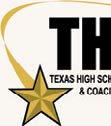



Easily sell tickets, check in attendees, and access revenue faster than ever. Streamline operations with season passes, custom seat maps, and secure gate entry, while reducing the need for staffed windows and cash handling.
Simplify ticketing, fundraising, and more with Hometown's digital solutions.
Learn more at hometown.com
ONLINE FUNDRAISING
Access a fee-free fundraising platform designed to help you raise more and keep more. Our intuitive, district-friendly solution makes running fundraisers effortless, rallying donors with less work and stress.





To the best coaches in the nation,
November 2025
I was sent a video the other day of a sermon where the pastor used the phrase “the sacredness of showing up.” His message hit home. He talked about how, in today’s world of constant technology, people have lost sight of what it means to truly be there for one another. When his father passed away, he received hundreds of texts, emails, and calls—but only one friend came and actually sat with him. That moment reminded me how rare and powerful it is just to show up for someone.
As I thought about that, I couldn’t help but think of my high school coach, Coach Paul Hurst in Mexia, Texas. Coach Hurst showed up for me in more ways than I can count, but one memory always stands out. My senior year, we had just lost a tough one to our rivals—the Groesbeck Goats. (If you’re from Groesbeck, just know I’m still irritated about that loss 30 years later.) We were undefeated until that night. They went on to win the state title, and that loss kept us out of the playoffs.
That Sunday morning, I walked into youth group at church—feeling defeated—and there was Coach Hurst. He was also our Sunday School teacher. I figured after that kind of loss, he’d be watching film or trying to regroup, but instead, he was there. Probably didn’t feel like it, but he showed up anyway. He encouraged us, taught us, and cared about us. That moment left a mark on me that’s never faded.
That’s what we do as coaches. We show up. Even when life gets tough, when we’re tired, when we’ve got our own battles—our kids need us. When we keep showing up, we’re teaching lessons they’ll remember for a lifetime. Thank you for doing that every day.
A quick reminder: nominations are open for Academic All-State, Super Elite Teams, Coach of the Week, and Coach of the Year. Please take advantage of these opportunities to honor athletes and coaches who represent our profession with excellence. ROCK nominations for the Class of 2026 are due December 1st.
Congratulations to all the State Champions in Team Tennis, Water Polo, Cross Country, and Volleyball. What a lifelong accomplishment for you, your athletes, and your communities. And to every team still battling through playoffs—enjoy the ride.
We also wrapped up Texas High School Coaches Day, and it was another great success. I can’t say it enough—you are the best people in the state of Texas. What you do matters, and it changes lives every single day.
Thanks for taking the time to read this—and more importantly, thanks for being who you are and doing what you do. You matter—to your families, your athletes, and to this great state. Keep showing up and keep making a difference, one kid at a time.

Drew Sanders, THSCA President


DIGITAL TICKETING IS NOW PART OF THE FAN ENGAGEMENT SUITE.

Fan-friendly and easy to manage. Meet Hudl Tickets.
Everything in one place.
Fans can watch live games and highlights, see schedules, and now buy tickets, all in one place.
Completely customizable. Choose your pricing, ticket types, capacity and single or multi-game ticketing.
No added cost.
It’s free to add Hudl Tickets to your organization.
More efficient entry.
Each ticket holds a QR code that fans scan at the gate, giving them direct entry in seconds and reducing lines. No minimums.
There are no minimums on tickets sold. Sell as many or as few as you’d like.
Let Hudl do the setup.
Let us know which events you want to offer digital ticketing and we’ll set it up for you.
Better reporting and security.
Digital sales simplify the accounting, security, and reporting process. Get a real-time look at who purchased tickets, tickets sold, and revenue generated.

Make your live events easier to attend. Get started with Hudl Ticketing at: hudl.com/solutions/fan/ticketing

Robert Gordon Copley, 76, of Richmond, TX, passed away peacefully on October 5, 2025, surrounded by his caring family. Born in Houston, Texas, on February 27, 1949, Robert dedicated his life to education, athletics, and mentoring young people. A proud graduate of Lamar University, where he earned his Master's Degree in Education, Robert spent 46 years coaching and teachingtouching countless lives through his passion, leadership, and heart for students.
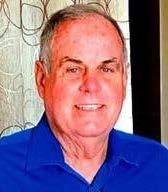
A lifelong sports enthusiast, Robert combined his love for the game with his profession. He served as a clock operator for both the Houston Rockets and the Houston Astros. He was an active and respected member of several coaching associations, including the Greater Houston Baseball Coaches Association, the Texas High School Coaches Association, and the Texas High School Baseball Coaches Association. His lifetime of commitment to student-athletes and to the sport he loved was honored through his induction into the Texas High School Baseball Coaches Association Hall of Fame in 2013 and Greater Houston Baseball Coaches Hall of Honor in 2023.
Robert will be remembered for his dedication, integrity, and his ability to inspire others - both on and off the field. His passion for coaching extended far beyond the game itself; he helped shape the character and futures of those he taught, leaving a legacy that will endure for generations.
Robert's legacy lives on in the countless students, athletes, colleagues, friends, and loved ones who were fortunate to know him. His love of sports, teaching, and family will forever be remembered and cherished.

Jackie Ray Narrell, a dedicated educator, beloved coach, and cherished family member, passed away on July 11, 2025, at the age of 80. Born on December 22, 1944, in Loraine, Texas, to E. A. "Cub" and Judy Narrell, Jackie's life was marked by a profound commitment to his family, his students, and the game of football.
Jackie's educational journey began in his hometown, where he graduated from Loraine High School. He continued his studies at McMurry University, preparing for a distinguished career in education and athletics. On December 22, 1967, Jackie married the love of his life, Denise. Their bond was a cornerstone of his life until her passing.
Jackie honorably served his country in the Army from 1968 to 1970. Upon his return, he embarked on a remarkable career as a high school football coach, dedicating 28 years to shaping young lives on and off the field. For 23 of those years, he served as a highly respected head football coach, amassing an impressive record of 155 wins, 86 losses, and 4 ties. His coaching pinnacle came in 1984, when he led Medina Valley High School to a State Championship, a testament to his ability to inspire his players. Upon retirement, he enjoyed watching nieces and nephews play volleyball, football, baseball, track, and lacrosse.
After the passing of Jackie’s wife, Denise, he followed through on a desire they both had to escape the cold Texas Panhandle winters and he moved to Bonita Springs, Florida, where he spent his remaining days playing golf and being with family.
Jackie was preceded in death by his beloved wife, Denise Narrell; his brother, Bill Narrell; his sister-in-law, Evelyn Narrell, brother-in-law, Fred Nebrig; and his nephew, Dean Nebrig.
He is survived by his loving sister, Virginia Sue Nebrig; his brother, Garland James Narrell; and his devoted nephews and nieces: Kenneth Nebrig, Marylin Beckmann, Brad Narrell, Britt Narrell, Pam Perkins, and Eric Narrell. Jackie's legacy of leadership, passion, and unwavering dedication will forever be remembered by his family, former players, and all who had the privilege of knowing him.
2025

THSCA will award the following scholarships: Eddie Joseph Memorial Scholarship ($2,500), Fisher Woodchick Memorial Scholarship ($2,005) and 10 additional $2,000 THSCA scholarships. Applicant must be child of current PROFESSIONAL member in good standing for the 25-26 THSCA membership year.
Selection of recipients will be based on the following criteria:
1. Academic Achievement
2. Financial Need
3. Community/Extra Curricular Involvement
4. Awards and Recognition


5. Must be a graduating senior in the class of 2026 and parent must be a current THSCA Professional Member in good standing.
Application requires completion of entry form, upload of an official transcript and a submission of a short essay stating why you would like to receive this scholarship and how it will be used. Please do not reference your name, parent's names, city or high school in your essay or short answer questions.
Recipients must use the scholarship towards an accredited college, university, trade or vocational school. Selections will be made by the THSCA Finance Committee, applications are anonymously submitted for review to the committee. All applicants will be notified when selections have been finalized. Incomplete applications will not be considered.
Entries must be submitted online by February 15, 2026.


Features only high school coaches as speakers
1 18 Lectures given by top high school football coaches from Texas
Friday Night OL and DB Chalk Talk
Saturday Night Small School Session
A discount to B Bass Pro Shops Outdoor World for each coach at the clinic (Good on selected items for the duration of the clinic.)
The Embassy Suites Hotel is located adjacent to Bass Pro Shops and in close proximity to Grapevine Mills Mall and the Toyota Music Factory
Coaches Devotional Sunday morning
A clinic t-shirt for the first 700 coaches in attendance (Sponsored by The Performance Course)
Cash and Bass Pro Shops gear given away after each lecture Sunday
$ $1000 Cash door prize after the last lecture Sunday
“Texas Hold-Em” Tournament Friday night
50 minute lectures and 45 minute breakout sessions
Job Board available


Clinic Headquarters:
Embassy Suites Outdoor World at D/FW Airport 2401 Bass Pro Drive, Grapevine, TX 76051
Phone (972) 724-2600 or (800) EMBASSY
To receive the special room rate of $161, make your reservation by January 4 and state you are attending the DFW Coaches Clinic. Embassy Suites Hotel provides a complimentary cooked to order breakfast and happy hour each day to every coach staying at the hotel. Each room comfortably sleeps four.
$80 registration fee if mailed in by January 23 ($90 after January 23, no refunds after this date)
To pre-register, please send the registration form and a check payable to:
DFW Coaches Clinic 30801 Beck Road Bulverde, Texas 78163
Check our website for clinic updates or to register online www.coachesclinic.net
E-mail — coachesclinic@yahoo.com




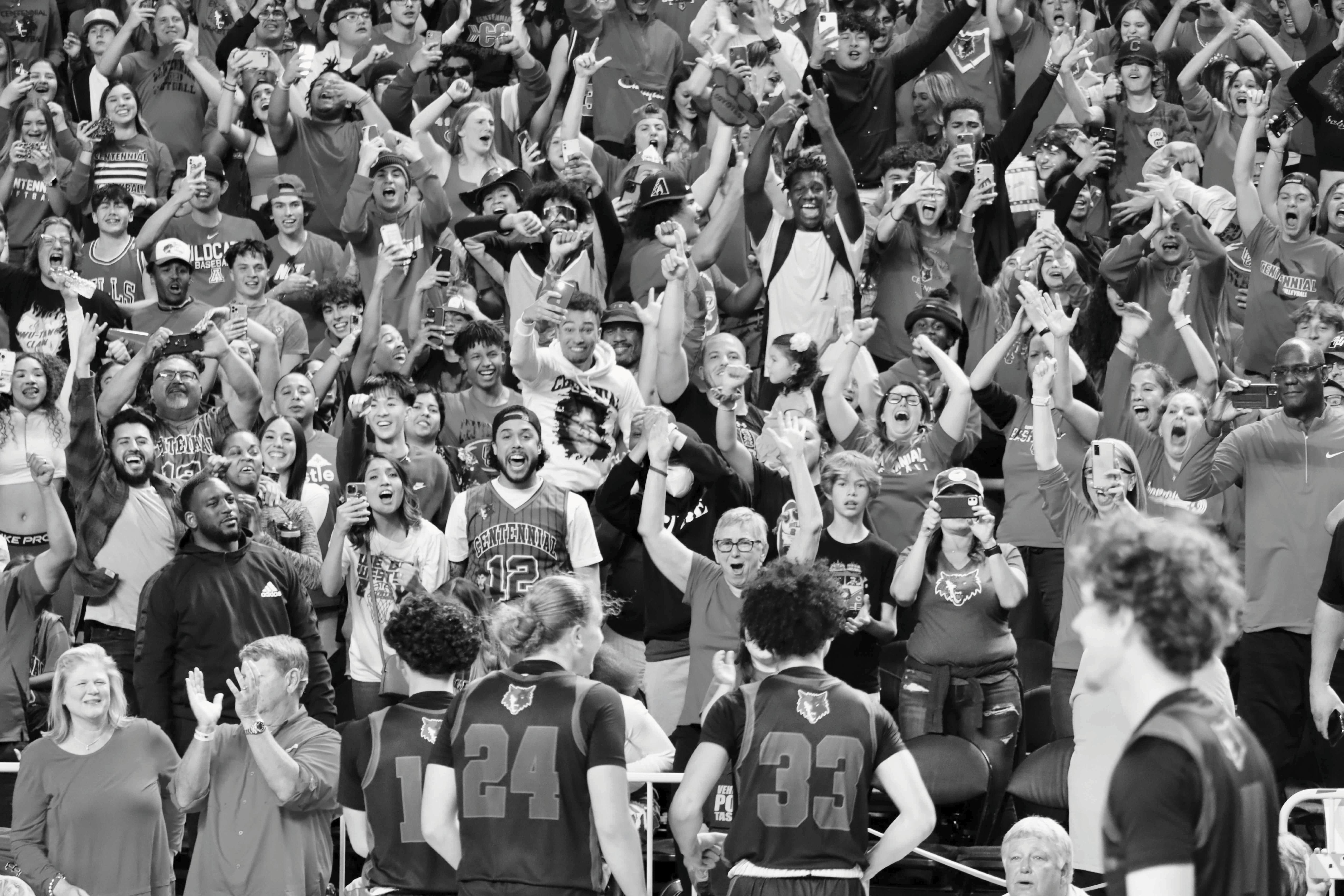
• Analyze plays in the coaches’ booth
• Use our favorites and data to optimize your halftime strategy
• Videos are stored locally on iPads, allowing you to easily watch in the locker room and on the bus ride home

“SkyCoach allows our staff to see what is happening in between series and make needed in-game adjustments on the fly.”
- Ian Nichols, Mill Valley Assistant Coach

Struggling with your current replay system?
It’s NOT too late to sign up with SkyCoach!


"Loyalty means nothing unless it has at its heart the absolute principle of self-sacrifice."
Woodrow Wilson
“You cannot buy loyalty; you cannot buy the devotion of hearts, minds, and souls. You have to earn these things.”
Clarence Francis
"Loyalty means I am down with you whether you are wrong or right, but I will tell you when you are wrong and help you get it right."
Unknown
"Without loyalty, there can be no true friendship or team"
Unknown
"Be loyal to those who are not present. In doing so, you build the trust of those who are."
Stephen R. Covey

" What makes something special is not just what you have to gain, but what you feel there is to lose."

Andre Agassi
"Adversity causes some men to break; others to break records."
William Arthur Ward
"Resilience is knowing that you are the only one that has the power and the responsibility to pick yourself up."
Mary Holloway

"You
“Difficulties in life are intended to make us better, not bitter.”
Dan Reeves
may have to fight a battle more than once to win it."
Margaret Thatcher
“Every adversity, every failure, every heartache carries with it the seed of an equal or greater benefit.”
Napoleon Hill
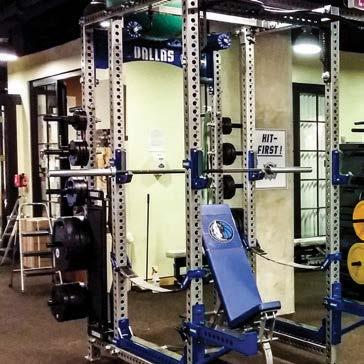
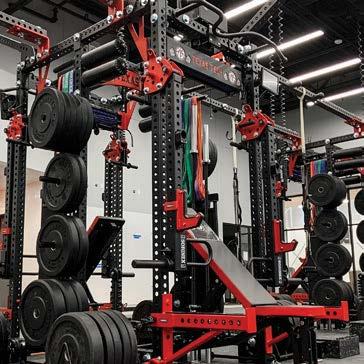
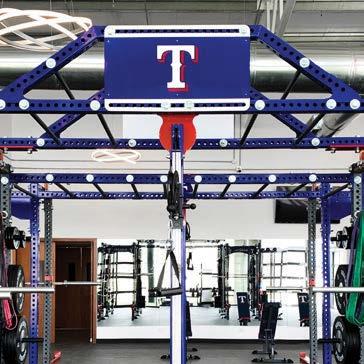

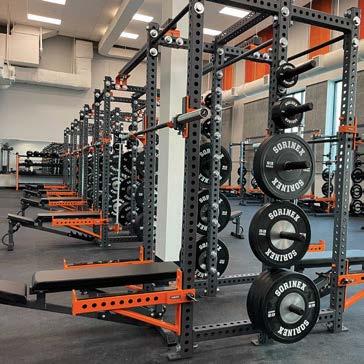


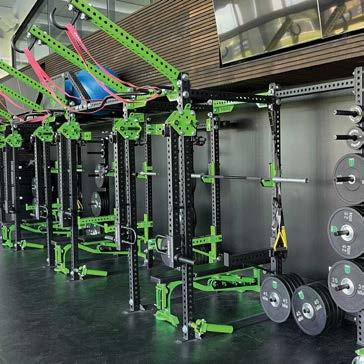
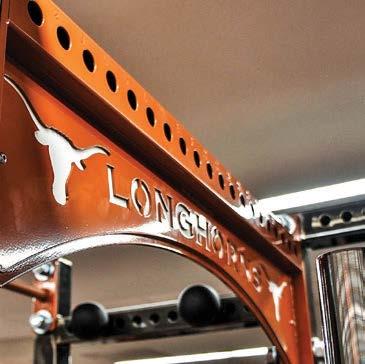


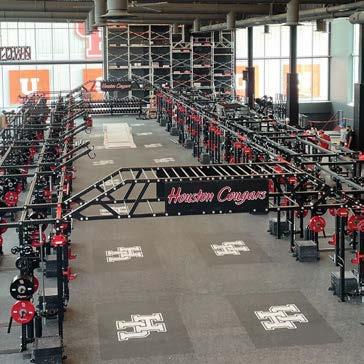



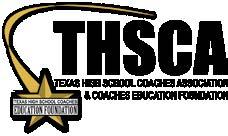
Elevate your team culture with sportsYou: the free, secure messaging platform built for coaches, not classrooms. sportsYou streamlines athletic communication across every team, all in one place – saving you time so you can focus on what matters most: your athletes.

sportsYou is 100% Americanowned. All data is stored and encrypted in the US
sportsYou does not sell individual user data
Communication settings are customizable to support your school/district policies



Districts own + can access communication history
sportsYou will review your DPA upon request
sportsYou will support you through the approval process + help you navigate HB 1481 and HB 4623 Meet with us: go.sportsyou.com/approval


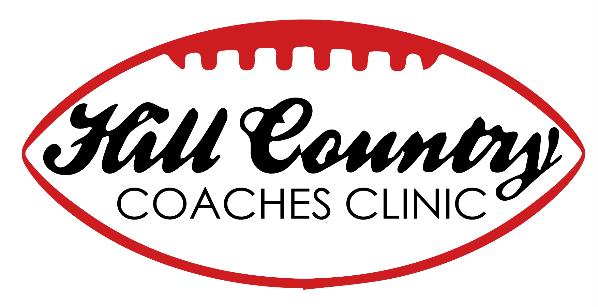







Bring your wife/family for a getaway weekend in the Texas Hill Country. We will talk football thru mid-afternoon each day, while the wives enjoy everything that Fredericksburg has to offer. A discount packet has been arranged from several local shops and is available for every attendee. There will be a Social on Friday evening where only the Ladies win the Door Prizes. Updated and Expanded Live Music, Saturday Night Social.
NAME:
NAME:
SCHOOL:
ADDRESS:
EMAIL ADDRESS:
NAME:
NAME:
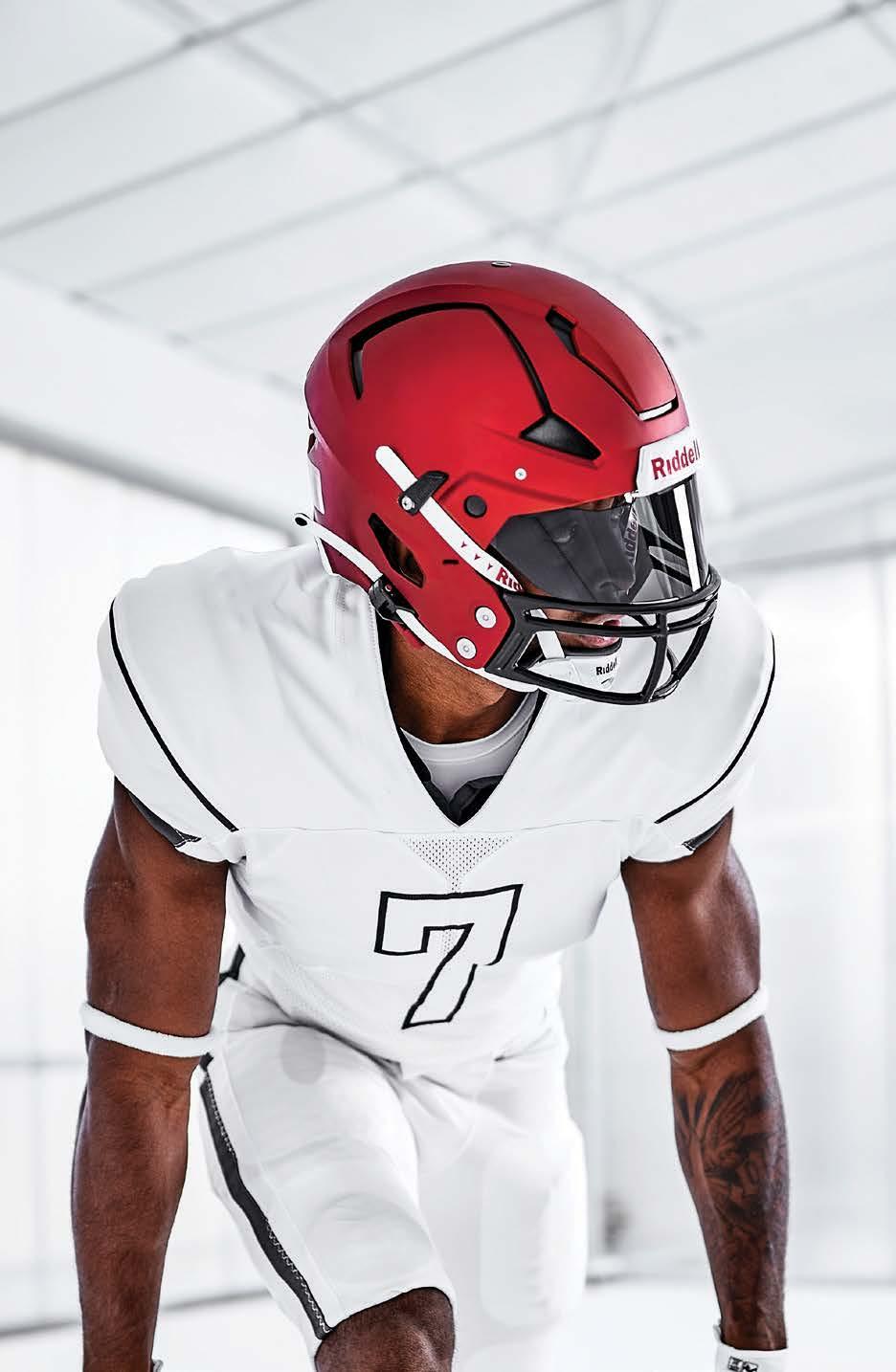
Largest
Largest reconditioner

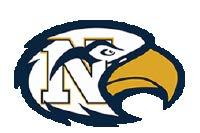
by: Katie page nimitz middle school (NEISD) girls athletics coordinator

The scents of Axe and Bath and Body Works fill the air, and for me, that familiar aroma instantly takes me back. It reminds me of a time when I was just beginning to find my voice and realize there was a bigger world out there. It was a time of confusion and frustration, where my voice was often silenced and the vast world made me want to retreat. The confusion and frustration never really went away, but the right people made it a little less overwhelming.
Middle school is a tough time for everyone, whether you’re a student, teacher, or coach. It’ll chew you up and spit you out. How you emerge on the other side depends on your support system. Coaches are a crucial part of that system, especially when children start to feel their independence and see their parents as just “annoying.” For some middle schoolers, their coach is the only support system they can truly count on.
Many coaches and athletes remember their high school or college coaches, but what about the ones who came before? Middle school coaches are often overlooked, yet they may be the sole reason we chose to pursue a sport in high school and beyond.
Growing up in Oklahoma, my school district didn’t have much in the way of middle school sports. We had cross country and football for seventh graders, with basketball added in the eighth grade. My first and only experience with school sports was playing basketball in eighth grade.
My first middle school coach was Coach Limes, my seventh-grade P.E. teacher. She also coached at the high school, but I don’t remember what sport. She was the first person who showed me that it was possible to be a mom and a coach at the same time. I think about her a lot now that I’m a mom and a coach myself. She made it look so easy, and I wish I knew her secret. She genuinely cared about each of her students and made everyone feel welcome. I’ve never felt like I fit in anywhere, and that feeling of acceptance stuck with me.
In eighth grade, my basketball coach was Coach Revels. She was one tough cookie! She taught me that even when everything seems stacked against you, you can’t quit. You have to push through and break those barriers. She made sure our team understood that hard work would get us where we wanted to go, but teamwork would make the journey better. These two women were the only coaches I had in middle school, but the lessons I learned from them have lasted well into my adult life. The impact of a middle school coach is truly remarkable.
Middle school coaches have a tremendous amount of power. They can inspire a kid to fall in love with a sport or turn them off of sports forever. A middle school coach can help an athlete recover from an injury, a heartbreak, or a family tragedy. Their impact reaches far beyond the playing field, whether a student-athlete realizes it or not.
I’ve spent my entire 20-year career in the middle school scene and recently found myself questioning if I was still in the right place. Then, out of the blue, I received a message from a former student who graduated in 2012. She wrote, “Hi Mrs. Page! I am up with my girls right now (3:ooam). I just wanted to let you know that you made a huge impact on my life and my mental health when you didn’t even know it. I always looked forward to being with you because you made me feel better. You’re an amazing person and don’t ever forget it.” I had no idea I was that influential for her. In the time since, I have had other student-athletes reach out to me to let me know how the things I did for them or said to them has impacted their lives.
Middle school coaches are like the middle child of the coaching family—often forgotten. In reality, their influence on a child’s life can be greater than that of any other coach.
So, what can middle school coaches do to ensure they’re making a positive impact on their studentathletes?
• Be a listening ear. Sometimes, all a kid wants is for someone to hear them.
• Be fair. Kids know when there’s favoritism. Consequences should apply to everyone, from the star player to the kid on the bench.
• Be a teacher first. Let them learn from their mistakes.
• Be patient. We all want patience and grace, and we need to show the same to our students.
• Be a good example. Show them how to be a good human being and serve others.
• Be kind. As Coach Mackey points out, being kind doesn’t always mean being “nice.” It means giving them the message they need to hear, even if it’s a little hard for them to hear it.
• Be honest. I always ask my athletes, “Do you want me to be honest or spare your feelings?” They always choose honesty. A little honesty goes a long way.
• Give them standards and keep them for everyone. They will rise to the occasion if you give them the chance.
• Be forgiving. Middle school kids make a lot of mistakes and say things they don’t mean. Show them forgiveness.
• Be a little goofy. Show them you’re human and that it’s okay to have fun.
High school coaches, you play a vital role, too. Supporting middle school coaches creates a seamless transition for athletes. Here’s what you can do to help:
• Stay in contact with middle school coaches. Know their names, their sports, and be visible.
• Ensure vertical alignment. Share your practice outlines, common drills, and language.
• Visit practices and attend middle school games. Show up and cheer on the athletes.
• Listen to middle school coaches. They know the athletes and their families and can provide valuable insight.
• Trust their judgment. Respect their knowledge of the athletes they’re sending to you.
• Be a mentor. You can help a middle school coach grow and prepare for their future in high school sports.
• Offer a helping hand when your feeder school hosts tournaments. Work the ticket booth or keep the scorebook.
• Be honest about what you need from them.
• Hold a practice at the middle school. Let the younger athletes see what a high school practice is really like—the good, the bad, and the ugly. The impact of a middle school coach reaches far beyond the school hallway or the echoes of the gym. It’s a lifetime impact. Middle school coaches often don’t receive the respect they deserve. Many work yearround, coach sports they had to learn from YouTube with athletes who may have never played a sport in their entire lives. Let’s all work together to increase the impact of middle school coaches and give them the recognition they’ve earned.

Use Our Playbook to Boost Your Off-Field Strategy
We’re ready to provide you with comprehensive laundry support— equipment, installation, parts, service and more—so you can focus on what matters most.
• Fast install = no preseason delay
• Built-tough machines for daily doubles
• Full-court service and support
• One point of contact

By Your Side— from First Play to Final Whistle As a full-service distributor, we’re the reliable partner behind your next big win.



BUILT-IN SEGMENT TIMER
DISPLAYS AND ANNOUNCES PERIOD NAME AND NUMBER
SPEAKERS SWIVEL AND ROTATE 360°

BLUETOOTH® 4.0 COMPATIBLE
BUILT-IN 25/40 SECOND CLOCK
CUSTOMIZE GRAPHICS FOR YOUR TEAM RICH, BOLD AUDIO PERFORMANCE AND IMMERSIVE SOUND
HEAVY-DUTY LOCKABLE WHEELS FOR EASY TRANSPORT

12” SUBWOOFER FOR MASSIVE, DEEP BASS
FEATURES:
NEW & IMPROVED TEMPO® PRACTICE MANAGEMENT
• Drive the pace of practice by keeping it moving
• Displays and announces periods
• Practice with structure and organization
SUPER POWERFUL SOUND
• Simulate loud and hostile game day environments
• Motivate and energize your players
• Stay in communication from anywhere on the field
WEATHER-RESISTANT TO ENDURE HARSH ELEMENTS
• Bright, sunlight-readable screen
• Water-resistant, crystal-clear 4k display
• One tool - Use it anywhere on or off the field


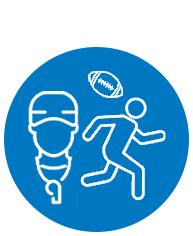


WHAT CAN TEMPO MAV PRO DO FOR YOUR PROGRAM?


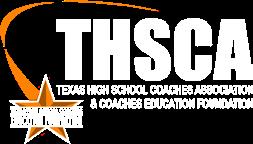


COVERAGE A - LIABILITY INSURANCE
Up to $2,000,000 per insured per occurrence/$ 3,000,000 per occurrence, plus the cost of defense, investigation and legal fees
•Applies in the event a member is alleged to have caused injury or damage to others while performing his/her professional duties
•Errors and omissions insurance for claims for damages arising out of a member’s duties as a professional educator, including all defense cost
Note: The duty of the insurer to defend extends even to groundless, false and frivolous suits and accusations.
COVERAGE B - REIMBURSEMENT OF ATTORNEY FEES
Up to $10,000 per insured per occurrence
•The policy provides reimbursement of attorney fees in a broad range of situations not included under Coverage A. This includes allegations of criminal and/or sexual misconduct and employment related actions
other professional rights and duties.
or resignation, the matter in dispute must be resolved in favor of the member to qualify for the full reimbursement of $10,000. However, $2,000 of this amount is available for initial consultation and research, whether or not the member prevails, to determine if there exists a reasonable chance of the case being resolved in the member’s favor.
COVERAGE C - BAIL BONDS
Up to $2,000 premium on bail bonds
COVERAGE A: Up to $2,000,000 per insured per ccurrence/$3,000,000 per occurrence, plus the cost of defense, investigation and legal fees.
COVERAGE B: Up to $10,000 per claim per Insured. Coverage for criminal proceedings and /or sexual misconduct limited to $10,000 aggregate per policy term.
COVERAGE C: Up to $2,000 premium on bail bonds.
COVERAGE FEATURES:
Criminal/Sexual Misconduct Allegations
The policy provides reimbursement of attorney fees up to $10,000 under Coverage B if the educator is acting in the scope of his/her duties.
Corporal Punishment
Corporal punishment is covered under Coverage A (Liability) if administered according to the rules of the jurisdiction in which the school is located.
Outside Activity
As long as the educator is within the scope of his/her professional duties, the policy covers liability for injury to students and others while the educator is conducting visits to industrial and commercial establishments, entertainment automobile, watercraft, & aircraft exclusions
Coverage B
Reimbursement of Attorney Fees - Such reimbursement as is afforded the professional rights and duties is assured under the policy and is not contingent on the approval of a board or review committee, as might be the case where the only available assistance is from a defense fund.
The Texas High School Coaches Association offers a Coaches Professional Liability Insurance option to eligible members with coverage beginning July 1, 2025. The THSCA has chosen the John A. Barclay Agency, Inc. to provide this coverage to our members. This plan was devised to offer liability insurance and legal assistance to THSCA members. In order to be eligible for this coverage you must meet the following criteria:
•
• Your THSCA Membership must be current for the school year in which the coverage is effective – 7/1/25 - 6/30/26
•PROFESSIONAL, AFFLIATE and LIFE members are eligible only if they meet the criteria above. This insurance is not available to STUDENT or RETIRED members.
If you choose to purchase this insurance coverage and do not meet the criteria for eligibility, this coverage will not be valid. This coverage will be in effect July 1, 2025 through June 30, 2026. Insurance purchased after July 1, 2025 will commence on the payment received date. This insurance coverage is not retroactive.
Payment should be made directly to the THSCA. The total 25/26 annual premium for the insurance coverage will be $65.00 per member.
Eligible members will be able to purchase the Coaches Professional Liability Insurance on the THSCA website, or by selecting to purchase the coverage on the THSCA membership application form and submitting it by fax, email or mail to the THSCA Office with payment NOTE: In order to be eligible to purchase the coverage your membership must be current for the same year of policy coverage. (7/1/25-6/30/26) )
Doyouhavethefinancialabilitytodefendyourselfintheevent of claim?
Doyouhavetheexpertisetofindthebestlegalcounselforyour situation?
THIS IS NOTA CERTIFIED COPY OF THE POLICY BUTA SUMMARY AND IS PROVIDED FOR REFERENCE ONLY. ALL COVERAGE PROVIDED UNDER THE TERMS OF THE POLICY IN THE EVENT OF A LOSS OR OCCURRENCE IS SUBJECT TO THE EXCLUSIONS AND CONDITIONS CONTAINED IN THE MASTER POLICY ON FILE WITH THE POLICYHOLDER, INCLUDING ALL AMENDMENTS, ENDORSEMENTS, AND ADDITIONS. QUESTIONS REGARDING SPECIFIC INSURANCE POLICY COVERAGE SHOULD BE ADDRESSED TO: The John A. Barclay Agency, Inc. 512.323 6566
CLINIC LOCATION
Marriott Courtyard New Braunfels River Village
SCHEDULE
Friday January 23
• Offense Lectures
• Defense Lectures
• Evening Hospitality
Saturday January 24
• FCA Breakfast
• Middle School Lectures
• Offense Lectures
• Defense Lectures
• Special Teams Lecture
• Strength Conditioning
Check the Website
• Updated Itinerary
• Lecture topics
• Online registration www.alamocitycoachesclinic.com
Call or email with questions: 830-708-9132 (Peggy cell) alamocitycoachesclinic@live.com

February 18-19, 2011
Kent Walker - Blanco
Jeff Luna - Poth
Brian Null - LaVernia
Sam Parker - Canyon Lake
Brent Davis - Gregory Portland
Clynton Elwood - Flour Bluff
Joseph Gillespie - Hewitt Midway
Drew Sanders - Vandegrift
Mac Acuña – Performance Course
Larry Zierlein- Retired NFL
Dr. Lindsay Stephens – SMASA
Courtyard New Braunfels River Village
Same Great Location on the River
750 IH 3 5 North. New Braunfels, Texas Alamo City Clinic rate: $1 39 Phone: 830-626-4700

CLINIC RATE
$80 preregister
$90 at door
• Register by Mail
• Register Online
CLINIC DIRECTORS
Coach Jim Streety
Coach Joe Martin
SPONSORS
SSR Jackets
Adrenaline
BSN
Beast Athletics
Bluebonnet Motors
Freiheit Country Store
Game One
Hellas Construction
ProMaxima
Riddell
Rudy’s Bar -B-Q
Sports Medicine Assoc iates
Synergy
Waterboy Graphics
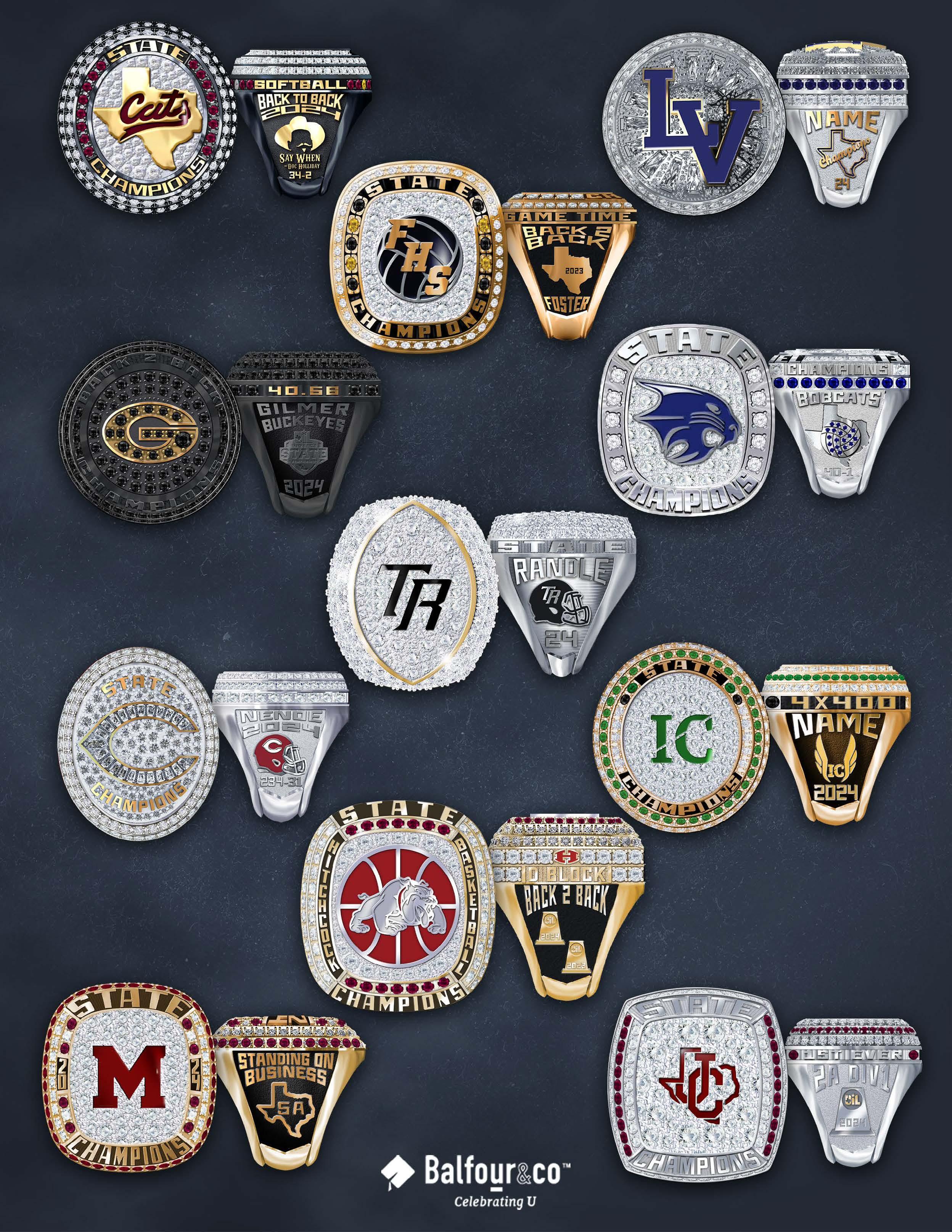

By ashley mchugh sinton high school Head Girls Basketball coach

I still remember the first time I walked back into that gym — the one I grew up in, where my love for basketball began. The same walls, the same echoes of sneakers squeaking on the court; but this time, the whistle was mine. I wasn’t the player anymore. I was the one leading the next generation — the first-time Head Girls’ Basketball Coach in my hometown, Sinton, Texas.
When I was told that I’d been chosen to lead this program, it was surreal. It felt like life had come full circle — but I had no idea how heavy that whistle could feel. My husband, David McHugh, a first-time Head Football Coach, and I have both stepped into new seasons of leadership. We are 31 and 32, raising two beautiful little girls, one-year-old, Jordyn, and eight-year-old, Riley. All while learning what it means to pour ourselves into both our teams and our family.
There’s something sacred about leading where you once learned. The gym smells the same, the banners still hang high, but now I’m the one responsible for inspiring a new generation of athletes. It’s humbling and empowering — a reminder that leadership begins with gratitude and grows through service.
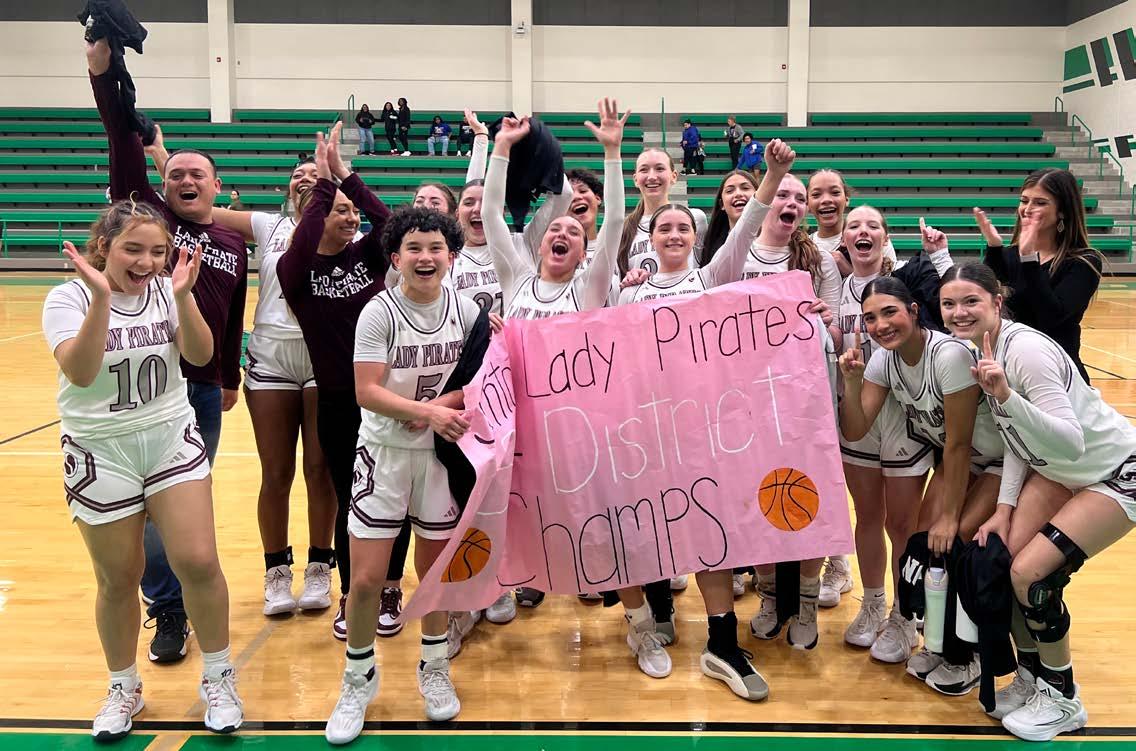
Being a first-time head coach is exhilarating — and exhausting. The long nights, the scouting reports, the endless game film, the emotional investment. You think you’re prepared for it, until the season begins and you realize this job asks for every ounce of who you are.
My husband and I laugh sometimes about our life — two head coaches, two programs, two sports, one family, early mornings, late nights, and a calendar that never seems to rest. Between football and basketball, our schedules are a constant blur. We trade practice stories over dinner, talk strategy during grocery runs, and celebrate wins with our kids in the stands. We don’t always have balance, but we have purpose. — but underneath it all, there’s gratitude. Gratitude for the calling, for the lessons, and for the love that keeps us grounded through it all.
Our eight-year-old, Riley, has learned what dedication looks like, and our one-year-old, Jordyn, has learned that the gym and football field is just another home. They remind us of why we coach — not just to win games, but to show them what passion and perseverance look like in real life.
Faith keeps our family grounded. It’s what helps us show up with grace on the days we feel stretched too thin, and gratitude on the days when we are blessed beyond measure.
When I took over, I knew it wasn’t just about basketball — it was about building a culture. We started with small goals: consistency, communication, and care. Every practice became an opportunity to teach not only
skills but character. Basketball around ‘Sinton America’ as we call it, had not been a topic of conversation in quite some time. I wanted to be that change! I knew these girls had it in them.
I tell my girls all the time — our success isn’t measured by the scoreboard, it’s measured by our growth. The effort you give, the respect you show, the belief you carry — that’s the kind of victory that lasts.
There was one practice I’ll never forget. We had a tough district loss the night before, and the energy was low. I stopped the drills and told them, ‘You can’t control the outcome, but you can always control your effort.’ They looked at me, nodded, and from that day forward, something shifted.
“It’s not just about basketball — it’s about building strong young women who believe in themselves.”
All those long nights and lessons led to something unforgettable — our team made it to the third round of the playoffs for the first time in 30 years. That moment wasn’t just about the game; it was about history, pride, and the belief that Sinton girls’ basketball could rise again.
Those playoff games were electric — the stands packed, the town buzzing, the players playing with everything they had. For me, it wasn’t just about basketball. It was about these girls — especially the seniors I’ve coached since they were in 7th grade. Watching them grow from wide-eyed middle schoolers to confident young women has been one of the greatest honors of my career. They’ve taught me just as much as I’ve taught them — about perseverance, about sisterhood, and about leading with heart. I watched our girls lead with confidence and heart. Watching them step into their moment was one of the proudest experiences of my life.
We didn’t just win games. We built trust, unity, and love for something bigger than basketball. Our journey reminded me that leadership is about people — not plays.
“The weight of the whistle is real — but so is the blessing it brings.”
Coaching in my hometown means every game is personal. The faces in the stands aren’t just fans — they’re family, teachers, friends, and neighbors who helped shape me. Every huddle, every timeout, every locker-room moment is a reminder that leadership isn’t about perfection — it’s about presence.
There are still nights when the gym lights are the only ones shining, when I sit in the quiet and reflect on everything this role demands. The weight of the whistle can feel heavy — but it’s also holy. Because with that weight comes purpose, connection, and the chance to make a lasting impact.
This journey has tested me, stretched me, and strengthened me in ways I never imagined. As I look at these girls, this program, this community — and the ones who started this journey with me — I’m reminded that the weight of the whistle is also a blessing. Because it means you’ve been trusted to lead.
Every time I walk into that gym, I know I’m right where I’m meant to be.

Me: My name is Ashley McHugh and I am the Head Girls’ Basketball Coach at Sinton High School. My husband and I, David McHugh– also a first-time Head Football Coach at Bishop High School — are both proud to lead our programs that reflect the heart, pride, and tradition of these communities. Together, we are raising two beautiful little girls, Jordyn(1) and Riley(8), while building a legacy of leadership, faith, and community through sports.






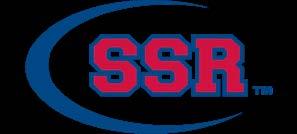








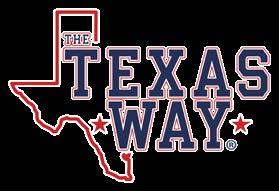














Josh Finney - Winnsboro HS
Clint Fuller - Kilgore HS
David Sanchez - Laredo HS
Zac Harrell - Athens HS
Brandon Faircloth - Sulphur Springs HS
SMU - Staff Slade Nagle - Houston
Jason Mohns - Arizona State
Jason Little - West Feliciana HS

$60 pre-registration by Jan 2nd • $75 after Jan 2nd • $300 entire staff (Must be received by Jan 2nd)

Where did you attend high school and what sports did you play?
I attended La Vernia High School, where I played volleyball, basketball, and softball. My basketball career was short-lived (I was not coordinated for that sport). My volleyball coaches were Coach Teresa Reyes, Coach Bernice Voigt, and Coach Jimmi Jo Conn, along with Sharon Westerholm and Clara Duelm. My softball coaches were Jennifer Kelley and Kelly Lindholm.
Where did you attend college and what was your degree in?
I earned my B.B.A in Marketing from Schreiner University in Kerrville, Texas, where I played four years of volleyball. I also received my Master’s in Educational Administration from Lamar University.
give me three qualities that make a great coach?
A great coach needs to be adaptable, a lifelong learner, and a relationship builder.
Tell me about the greatest coach you ever had and what made them great?
This is an incredibly difficult question for me. I’ve been blessed to work with and play for so many phenomenal coaches. As a player, I would say Theresa Reyes, Robin Gerlich, Shannon Wolfe, and April Fricke had a huge impact on me. Each one pushed me to reach for new heights as
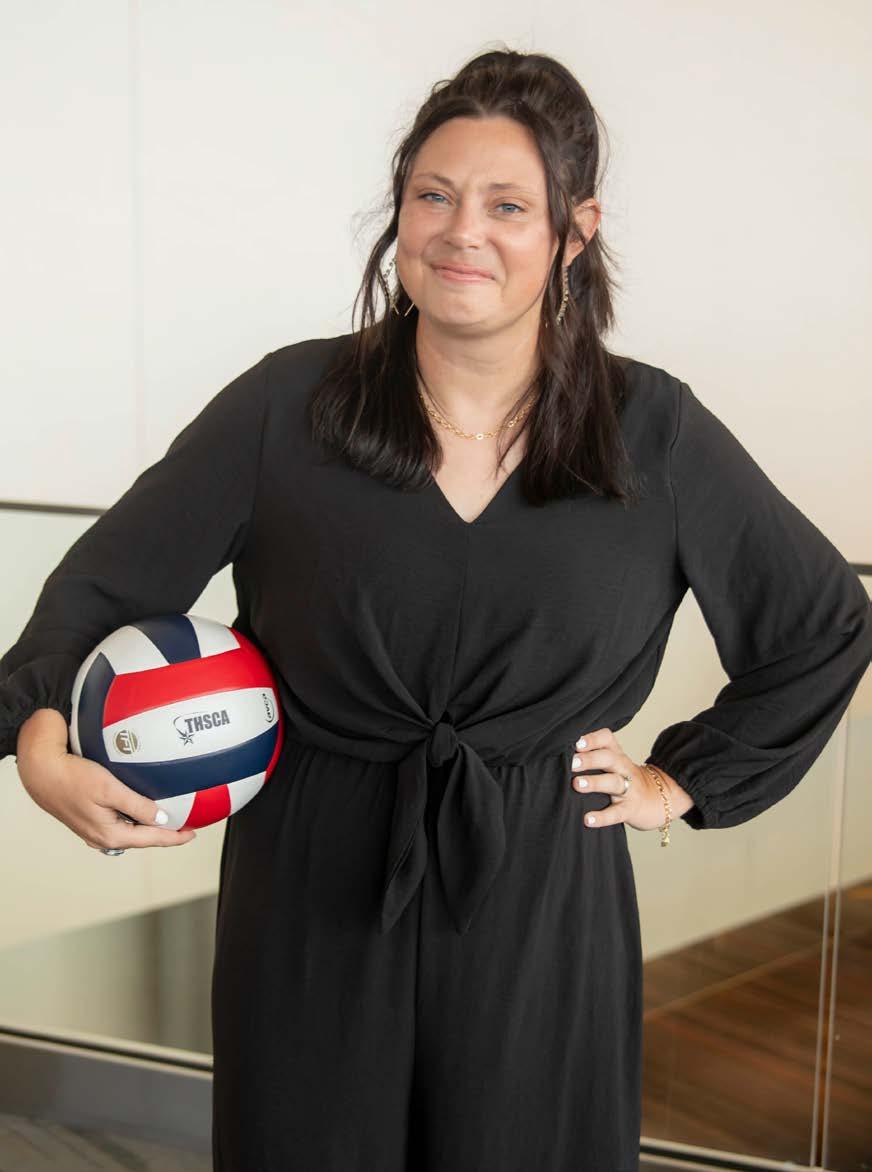
an athlete and an individual. They were always honest with me, which, as an adult, I’ve grown to appreciate. As a coach, I’ve had so many amazing mentors. Coach Tommy Pensnick gave me my first head coaching job at Hallettsville and taught me how to slow down and listen more. Coach Travis Reeve showed me what it takes to run a successful program. Coach Monica Gonzales and Coach Robyn Wunderlich taught me so much in terms of volleyball and the importance of developing relationships with athletes. I’ve learned from the best in the business. Each one of these coaches was great in their own way, but every one of them built phenomenal relationships and loved the kids. More than anything, that is what I remember of each of them.

Tell me what character traits or values you hope to impress upon your student-athletes when they go through your program.
I hope my athletes learn resilience, communication, trust, and the value of hard work and vulnerability. True success cannot be achieved alone, and I want them to know how to work with other people regardless of the situation. I also want them to find joy in the process. Success is hard, and I want them to learn to love the hard; as they say, pressure makes diamonds.
What advice would you offer an assistant coach that hopes to be a head coach someday?
Be patient and learn as much as you possibly can. Ask questions all the time and figure out what works best for you. Learn how to ask for help and work on your communication skills. Most of all, love what you do even when it’s difficult. Find the good in every day and remember you are there for the kids.

What do you find most rewarding about the coaching profession?
It is so wonderful to see the success of young athletes on and off the court. I’m finally far enough in my coaching career to see all the wonderful things the athletes I have coached are doing. It is amazing to see these young athletes grow in sports and in life. They are going to college, graduating, getting amazing jobs, and raising families. I feel lucky and privileged to be a small part of their journeys.
who would you want to thank for supporting you on your coaching journey so far?
First, my parents. They have always been there for me. I remember I called my mom crying at 22-years-old and said, "I don’t like marketing, I want to quit my job and do something else." She loved me and said, "Come home and figure out what makes you happy." This allowed me to find
education and this job that I love. They have been there for me in every step of my journey, and I do not know where I would be without them. Second, my husband. He manages to give me the advice I need and lift me up when I’ve had a bad day. Last, but not least, all of my mentors and friends I’ve made along the way in my coaching journey. I could write a very long list, but I’d like to specifically thank Robyn Wunderlich, Monica Gonzales, Meg Williams, Brooke Daily, and Samantha Paul-Wallace. This group of amazing women has pushed me to be the best version of myself, and I love them for it.

What is one personal goal you have set for yourself this year?
My personal goal for this year is to find joy and positivity in every day. This job can be difficult at times, and criticism comes with the territory; but there is always something wonderful that happens, and that is where I want to put my focus.
What does it mean to you to receive the THSCA coach of the year award from your peers?
Words cannot describe what this award means to me. In a year, I went from thinking I would have to step away from this profession due to my cancer diagnosis to winning a state championship and being coach of the year. I am humbled by this honor, and I truly appreciate those who nominated me and chose me for this award. I also know this is not my award alone. It belongs to my assistant coaches, Kirby Weeks, Cady Bargfrede, and Roberto Frontera as much as it belongs to me. I also owe a huge thank you to Lacey Lambert and Doug Warren for their support and to the entirety of Wimberley ISD and the Wimberley community. Our success could never have happened without the support of Wimberley, Texas.
Where did you attend high school and what sports did you play?
I went to Mexia High School in Mexia, Texas. I played football, basketball, and track. My head football coach was Coach Paul Hurst.
Where did you attend college and what was your degree in?
I attended Hardin-Simmons University in Abilene, Texas, where I played football for Head Coach Jimmie Keeling. I earned a degree in Physical Education with a minor in English.

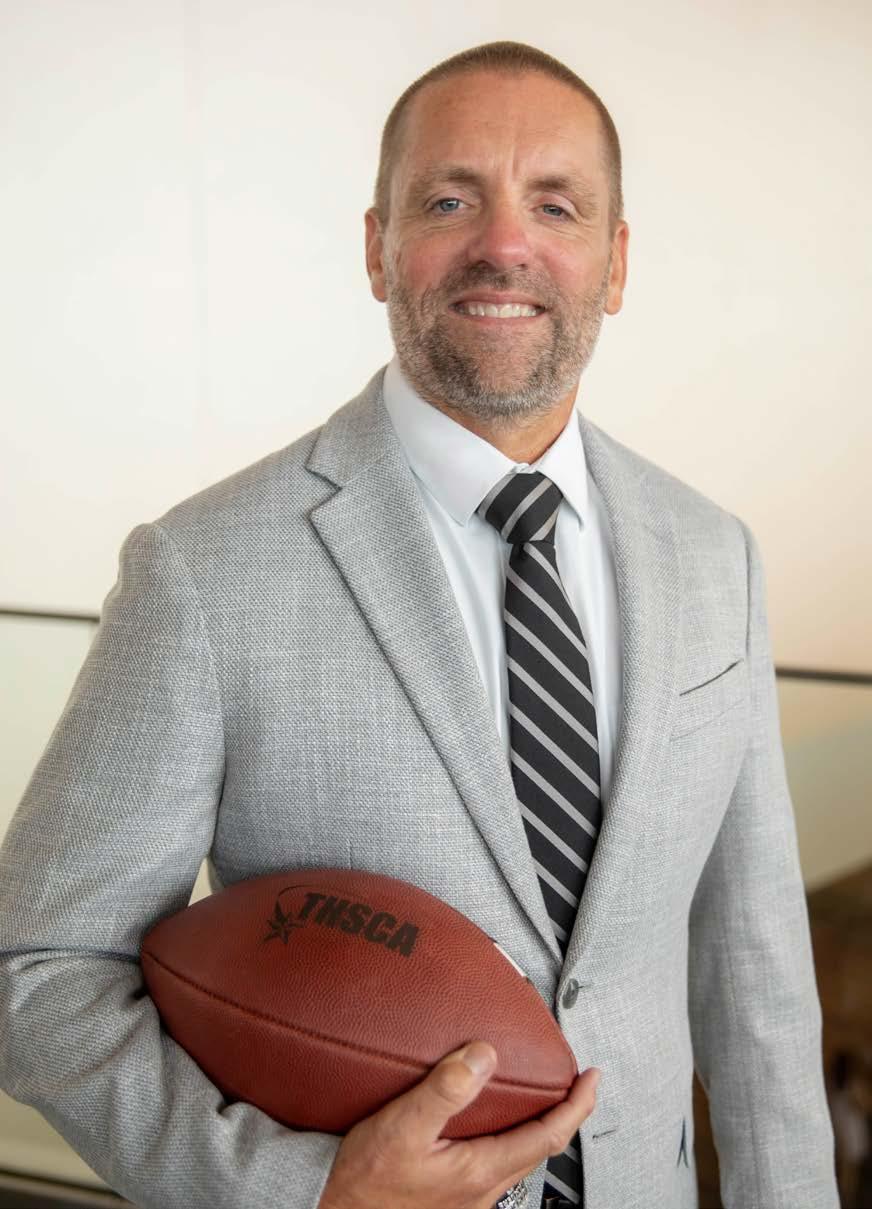
give me three qualities that make a great coach?
There are so many qualities that define great coaches, but my top three would be:
1. Organization – You have to be organized to accomplish anything with your team.
2. Care for Kids – This profession has to start with genuinely caring about kids and helping them become better people.
3. Drive – Great coaches are motivated to improve, to lead, and to help others succeed.
Tell me about the greatest coach you ever had and what made them great?
I’ve been blessed with many great coaches, but three stand out:
1. Paul Hurst, my high school coach
2. Jimmie Keeling, my college coach
3. Lee Bridges, my mentor and former head coach
All three shared the same qualities — passion for what they did, strong organization and drive, and a deep heart for kids. They still inspire me to this day
What do you find most rewarding about the coaching profession?
The relationships with our kids — that’s it. It’s the most rewarding part of this job and truly the highlight of my life.
No matter what’s going on, being around our athletes at Vandegrift brightens my day.
Tell me what character traits or values you hope to impress upon your student-athletes when they go through your program.
I hope our young men take many lessons from our program, but our four core values at Vandegrift High School Football are:
1. Discipline – Understanding what discipline can do for you in life.
2. Effort – Giving great effort is the ultimate cheat code to success.
3. Toughness – Mental and physical toughness are required to achieve anything worthwhile.
4. Honor – Living as a man of honor gives your life lasting relevance.
These are the hallmarks of our program and the foundation for everything we do.
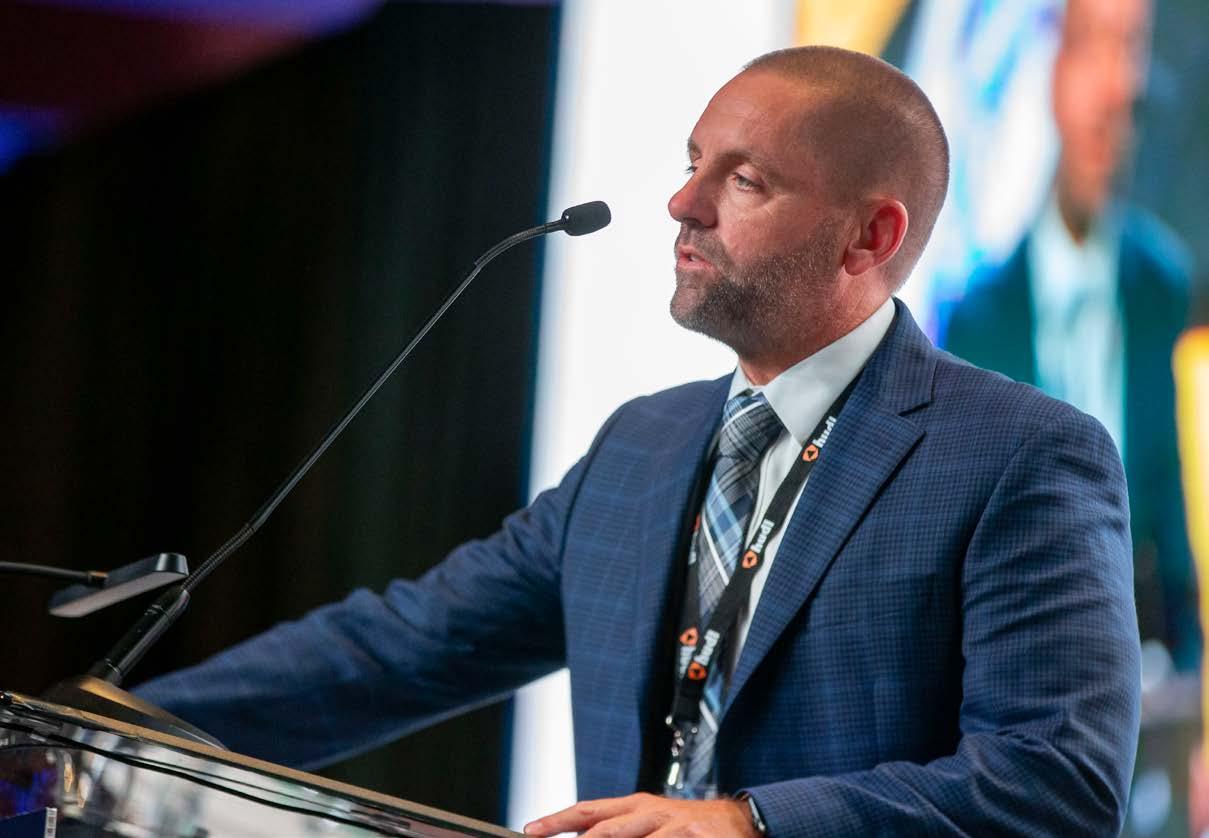
What advice would you offer an assistant coach that hopes to be a head coach someday?
First, be an expert at something. For me, that started with the defensive line and grew from there. When you become great in one area, people notice. So study and learn from the best around you.
Second, network. Attend clinics, coaching school, and professional events. Build connections — you never know who might help open the door for your next opportunity.
And finally, keep learning. Stay curious, ask questions, and always be willing to grow. You've never arrived.
who would you want to thank for supporting you on your coaching journey so far?
First and foremost, my wife, Janet, who has been by my side for my entire coaching journey — from middle school coach all the way to head coach at Vandegrift. She's been there for every tough loss and amazing win. I’m also deeply thankful for my parents, who have always been so supportive of me throughout my entire life including my coaching journey, and for all the incredible coaches and players I’ve had the privilege to work with through the years.

What is one personal goal you have set for yourself this year?
My goal is always the same each year: for our team to reach its full potential, for me to connect with and impact every young man on our roster, and to keep striving to be a great husband, father, and friend to those around me.
What does it mean to you to receive the THSCA coach of the year award from your peers?
This award is incredibly special because it comes from my peers — the very best coaches in the world. I have always been so proud to be a Texas high school coach. Also being recognized by the Texas High School Coaches Association, the greatest organization of its kind anywhere, means a great deal to me.
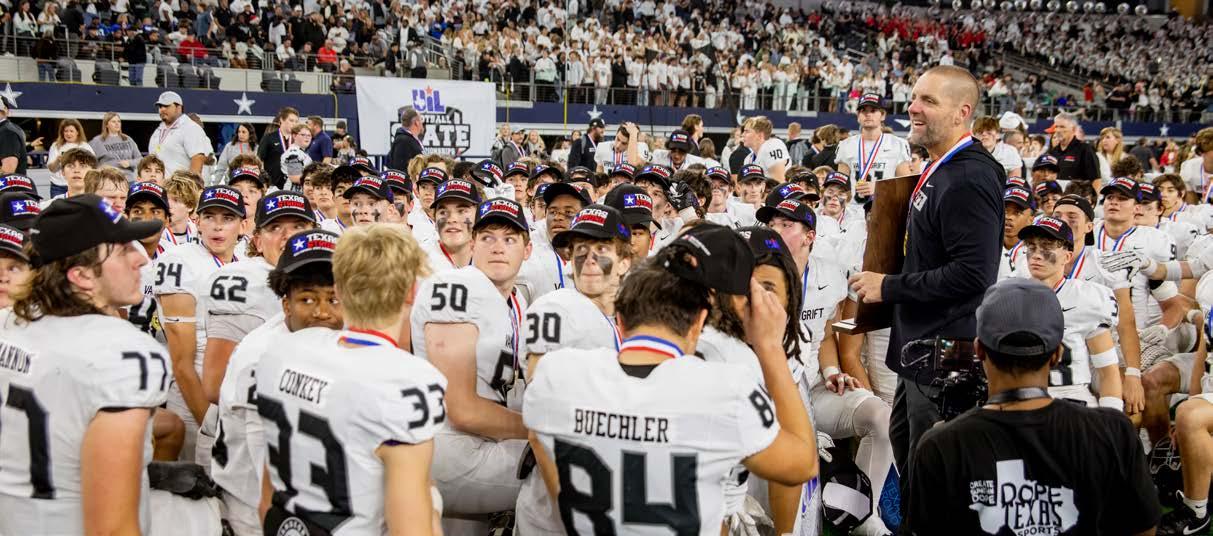






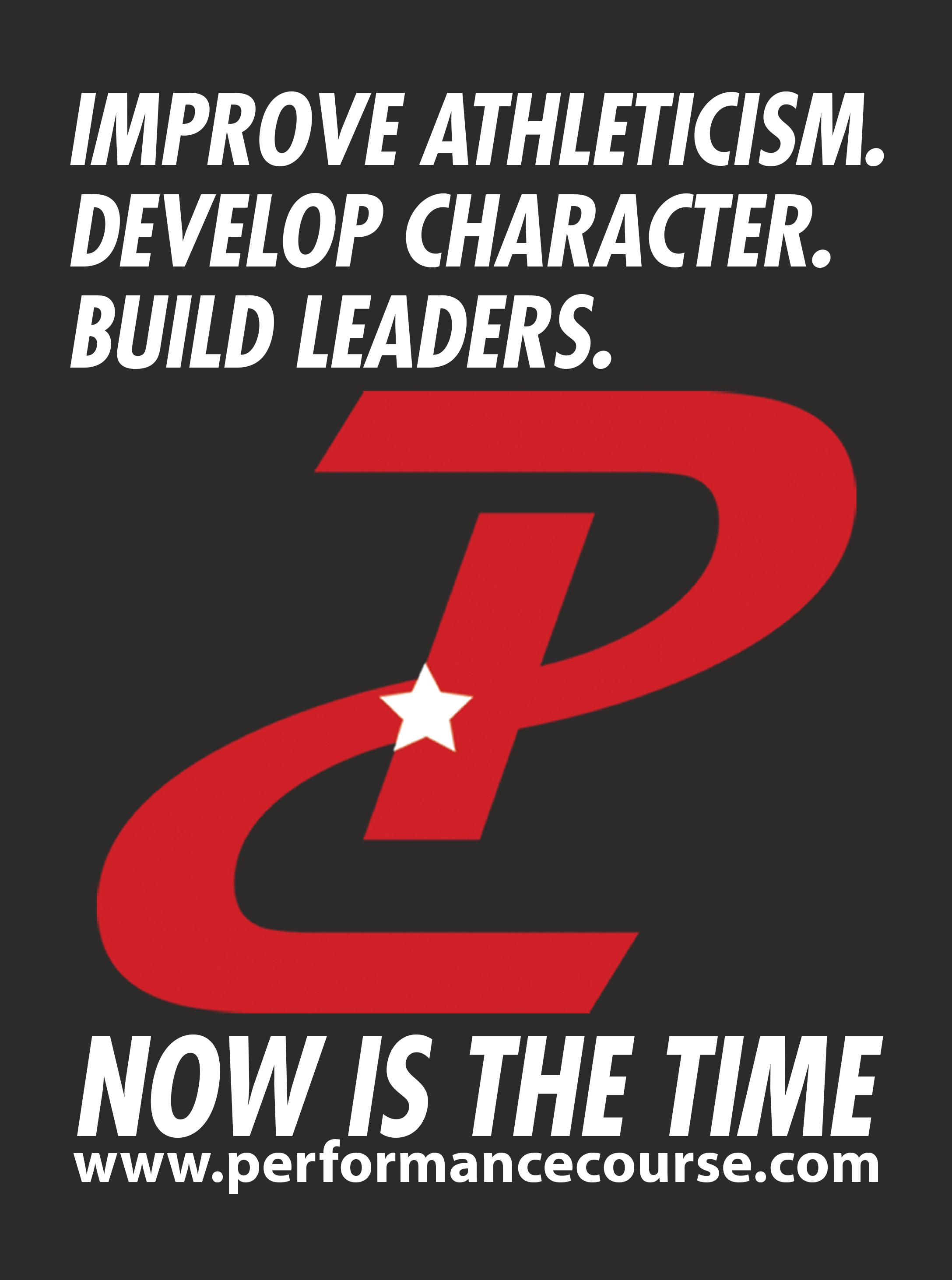

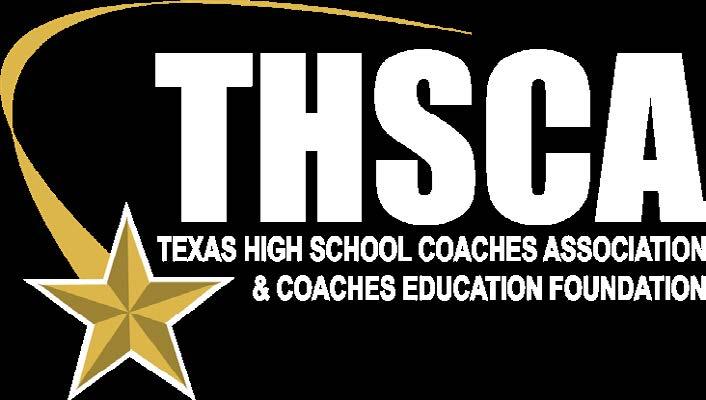


The THSCA Super Elite Teams consist of high school players nominated by members of the Texas High School Coaches Association. The player must meet the THSCA award criteria to be nominated. The award recognizes student athletes across the state of Texas for their exemplary athletic achievement in their respective sport. (Do you have highlights of athletes you think are Super Elite? We would love to see you post them on social media and tag us @THSCAcoaches and #SuperEliteTeam.)
All eligible nominations will be collected and sent to the the S.E.T. (Super Elite Teams) Committees to be evaluated. The S.E.T. Committee will submit the finalists to the THSCA Advisory Committee for their respective sport for final approval and decision on who has made the Super Elite team in each classification. Super Elite teams will be recognized after the state championships have been announced. See the chart below for nomination windows for each sport.
1. Be of good moral character
2. Varsity sports only
3. Have been a member of the team in good standing at the time of nomination
4. Player has excelled as an elite member in their respective sport
► There will be 101 Super Elite Teams covering all 23 sports throughout the state.
► There will be over 1,800 student-athletes recognized on the Super Elite Teams.
► We will have 808 Coaches (on S.E.T. Committees) that will select the Super Elite Teams.




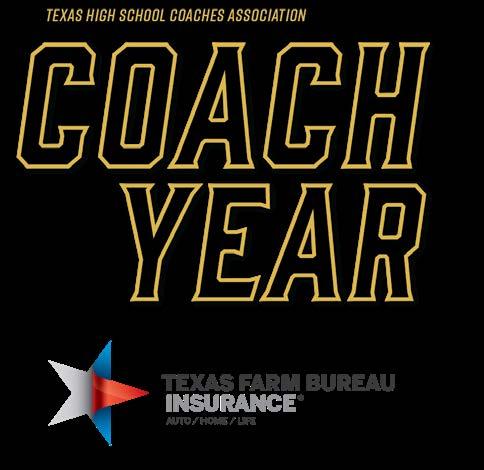
THSCA along with our partners at Texas Farm Bureau Insurance, want to give recognition to our Texas high school coaches for their accomplishments on and off the field/court. We will be presenting head coach and assistant coach of the year awards in every sport and every THSCA region. Awards will include:



The nomination process will be open to every member of THSCA after the state championships in each sport. Each THSCA member is offered a chance to nominate a head coach and/or assistant coach to submit through the member portal. Nominations will cease after two weeks. Nominations will then be handed over to the Awards Committee for scoring (by region).

* Indicates nomination window applies for both boys and girls teams in that particular sport.
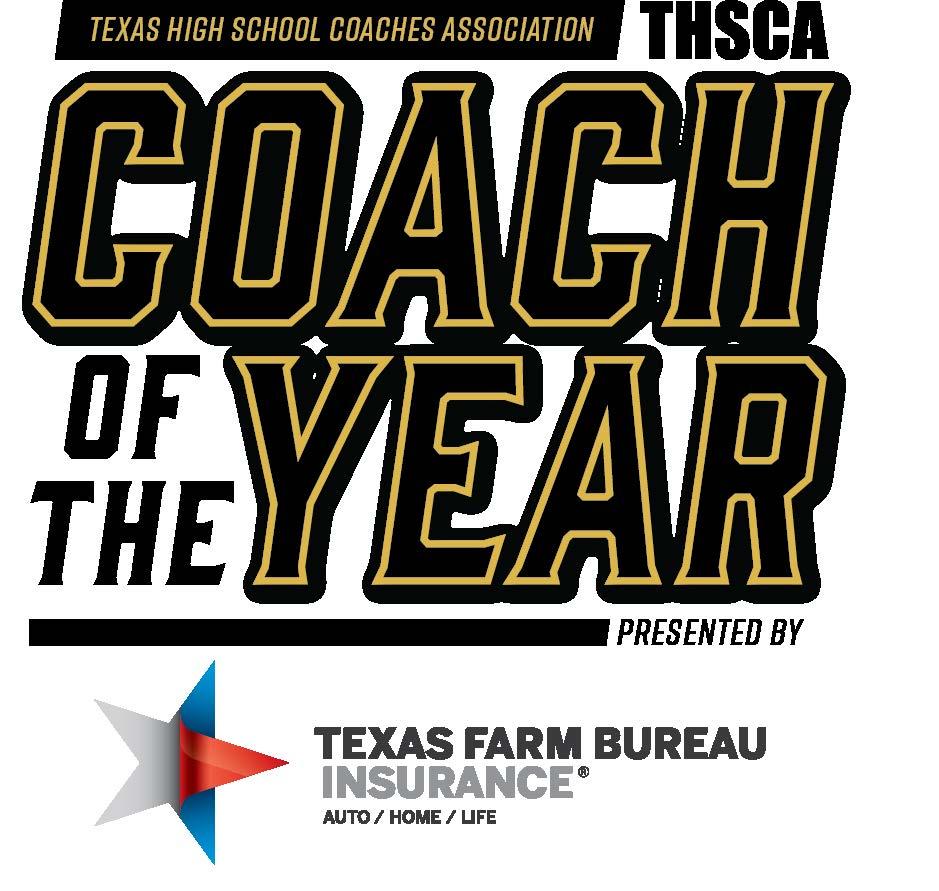

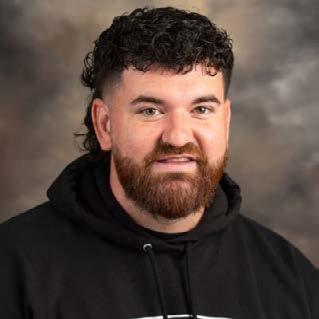
BY ANDREW PROCELL, HEAD girls soccer COACH - corsicana HS (THSCA Advisory committee -
As coaches, we all share the same hope for our student-athletes: that their high school years are filled with growth, memories, and opportunities that extend far beyond wins and losses. One of the most important ways we can support that journey is by encouraging — not discouraging — multi-sport participation.
I’ve seen firsthand the value of multi-sport athletes at Corsicana High School. Each year, I have athletes who balance soccer with cheer, volleyball, dance, and track. These young women not only bring diverse skill sets to the field, but they also develop resilience, time management, and leadership in ways that specialization alone cannot provide.
In this article, I want to highlight the value of supporting multi-sport athletes, drawing on my own experience and the wisdom of two respected peers: Coach Aaron Erickson of Hallsville and Coach Gerald Slovacek of Midlothian Heritage. Both men have built highly successful programs while embracing the philosophy that multi-sport athletes are not only possible, but essential.
For Coach Aaron Erickson, who has coached girls soccer at Hallsville for sixteen years, supporting multisport athletes begins with a clear priority: the athlete’s growth and well-being.
“I encourage all of my athletes to participate in activities that help them grow and enjoy their athletic experience,” Erickson shared. “The focus should always be on the athlete — their goals, interests, and development. Coaches should prioritize the needs of their athletes above their own preferences.”
Erickson sees multi-sport participation as preparation for life. Navigating different coaching styles, teammates,
and team cultures forces athletes to adapt — a skill that will serve them long after their playing days are over. Of course, transitions are not always easy. Athletes returning from one sport often find themselves on a different rhythm than those who have been training in the offseason. Erickson stresses the importance of patience, integration, and communication when bringing them back into the program.
From a performance standpoint, he believes playing multiple sports creates more complete athletes. A volleyball player, for example, may bring explosive jumping and balance into soccer, while soccer adds agility and endurance that benefit her in other sports. The key, Erickson says, is balance — avoiding overuse in one sport and ensuring that athletes continue developing in the sport they love most.
Perhaps his strongest advice to coaches is this: “Truly know your athletes. Too often, coaches focus on wins and forget that high school athletes are still kids. Your role is to support them and make decisions based on what’s best for them, not what’s best for you.”
At Midlothian Heritage, multi-sport participation isn’t just allowed — it’s built into the culture. Head Coach Gerald Slovacek, now in his 21st year, has between 8–15 athletes each year balancing soccer with other sports. He sees it as a vital part of the Heritage identity.
“Competing for your school is a different experience than playing for a club team,” Slovacek said. “Anytime an athlete can compete, it is a good thing. Most of the girls play club soccer year-round, so during the offseason it is a good change up for the body and mind.”
Slovacek believes the benefits are wide-ranging: improved athleticism, reduced overuse injuries, stronger competition, and — perhaps most importantly — a healthier athletic culture. He also highlights the mental
benefits: stepping away from the pressures of club soccer to play a different sport for fun and school pride gives athletes a much-needed reset.
The key to making this work at Heritage is collaboration among coaches. Slovacek outlined the structure clearly:
- Volleyball players stay fully committed until their season ends.
- Basketball players split time until two weeks before tryouts, then transition, with alternating practice schedules once soccer begins.
- Track athletes attend one practice a week (usually on recovery days) and compete in meets when they don’t conflict with soccer.
Importantly, game conflicts are resolved by coaches, not players. “The players don’t make the decision, the coaches do. This takes the pressure away from the player to choose and disappoint a coach,” Slovacek said.
This system keeps workload manageable — athletes only practice one sport per day, and their game minutes are adjusted for recovery. Trainers provide essential support, and recovery sessions are prioritized during the season. Slovacek emphasizes that it takes a special type of student-athlete to balance academics, athletics, and rest, but the role of coaches is to listen and adapt.
His advice to coaches is simple: “Do the best you can to support the athletes. Our system works well, but every school can find ways to make it possible.”
Like my peers, I’ve had the privilege of coaching athletes who thrive in multiple sports. At Corsicana, I’ve seen cheerleaders who bring energy and leadership into
soccer, volleyball players who contribute explosiveness, and track athletes who add speed and endurance.
One of the greatest challenges, however, is timing. A soccer athlete coming off a long volleyball playoff run may enter the season in a different rhythm than teammates who have been with us since November. That’s where communication and patience become essential. Building a culture where athletes know they are supported — whether they’re arriving from volleyball practice or stepping off the track — is a non-negotiable part of my coaching philosophy.
Multi-sport athletes also remind us of something bigger: high school athletics isn’t just about chasing scholarships or wins. It’s about providing opportunities for kids to grow, to represent their school in as many ways as possible, and to create memories that will last long after the final whistle.

The message from Hallsville, Midlothian Heritage, and Corsicana is clear: support your multi-sport athletes. Encourage them, communicate with other coaches, and remove the pressure of choosing one program over another.
High school is short. For many athletes, these four years are the last time they will ever compete in organized sports. Why limit them to just one?
As coaches, we hold tremendous influence over how these young people experience athletics. By embracing multi-sport participation, we don’t just build stronger athletes — we build more adaptable, resilient, and wellrounded young adults. That, above all else, should always be our goal.
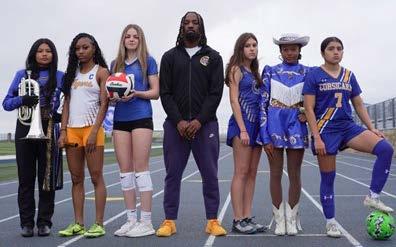

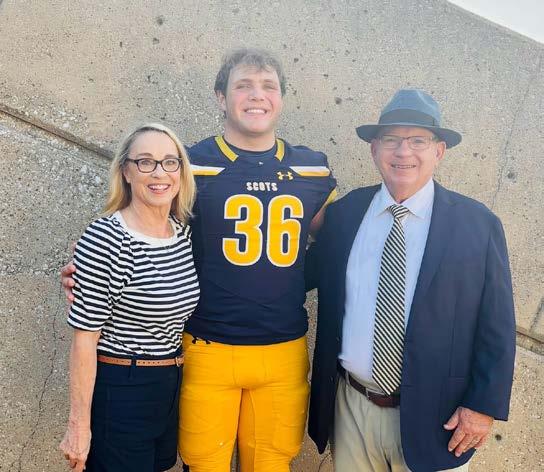
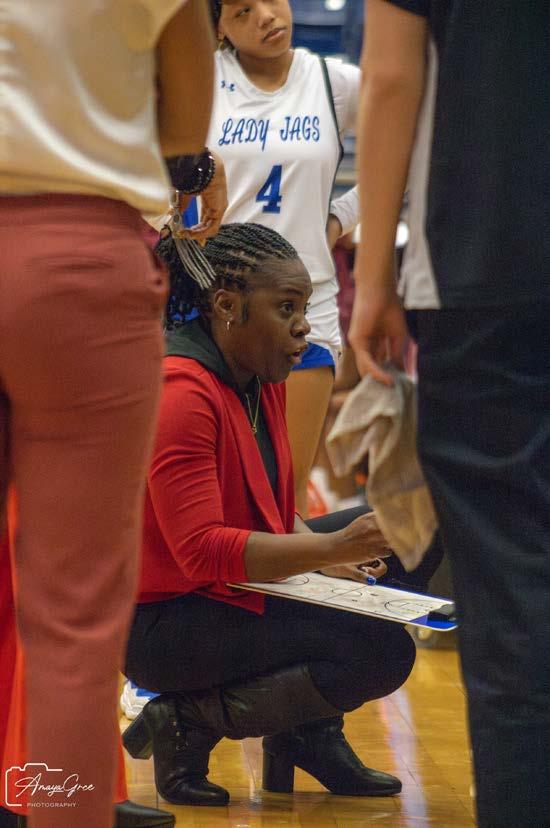


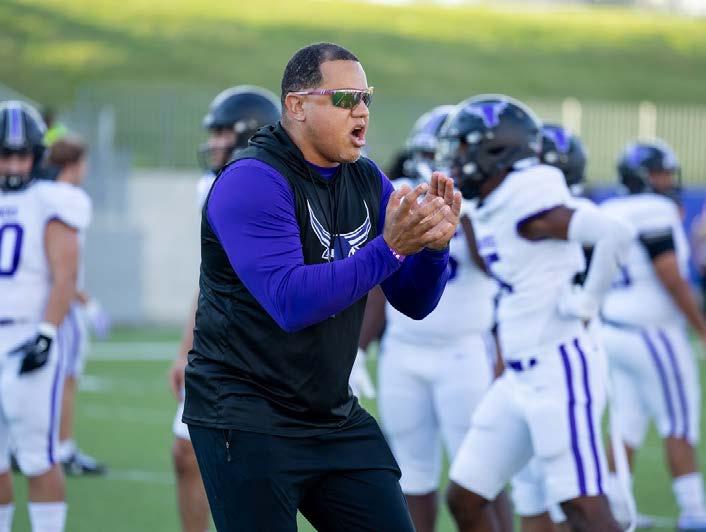



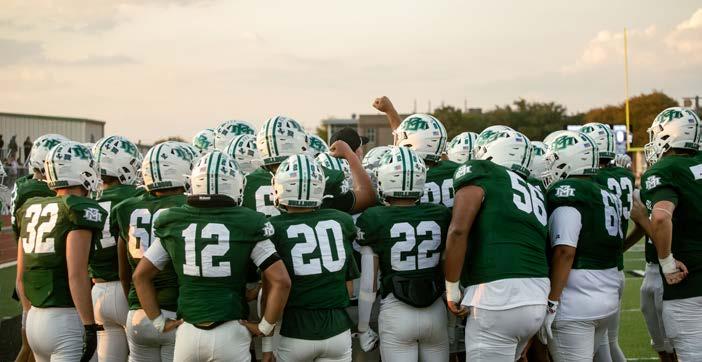
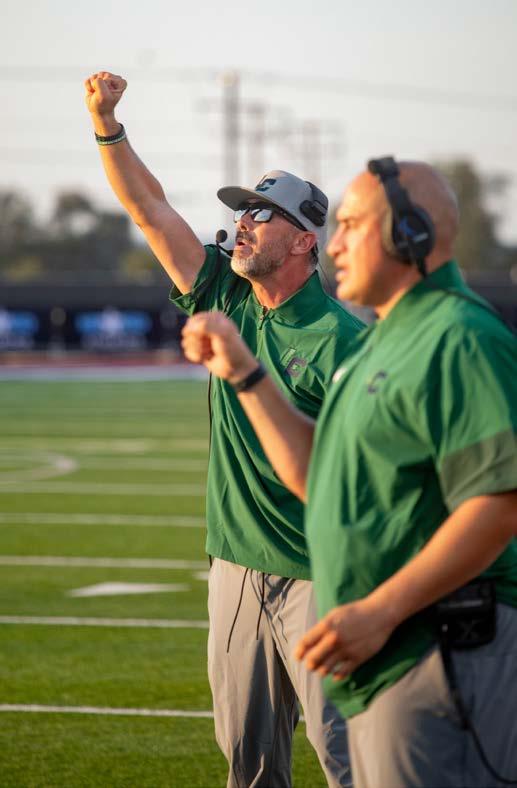
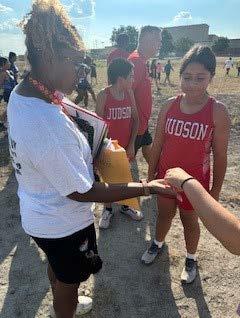
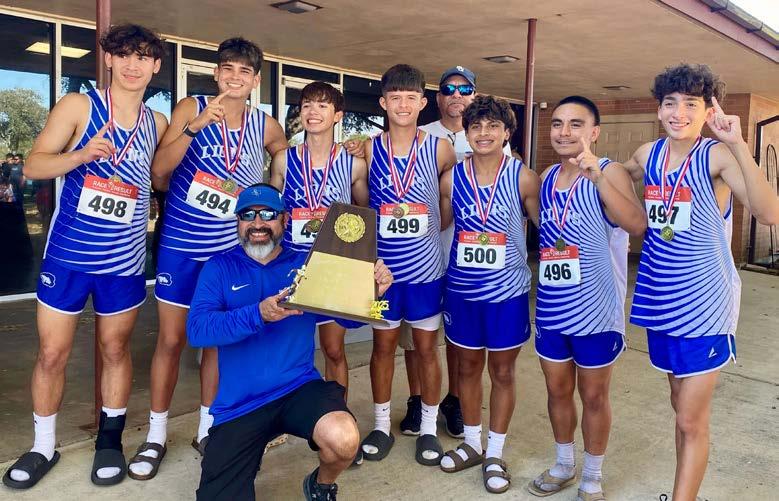

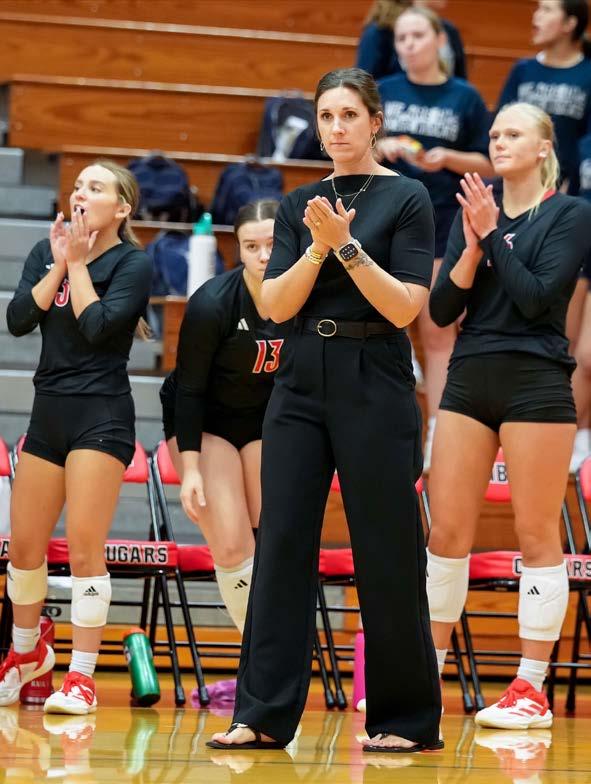
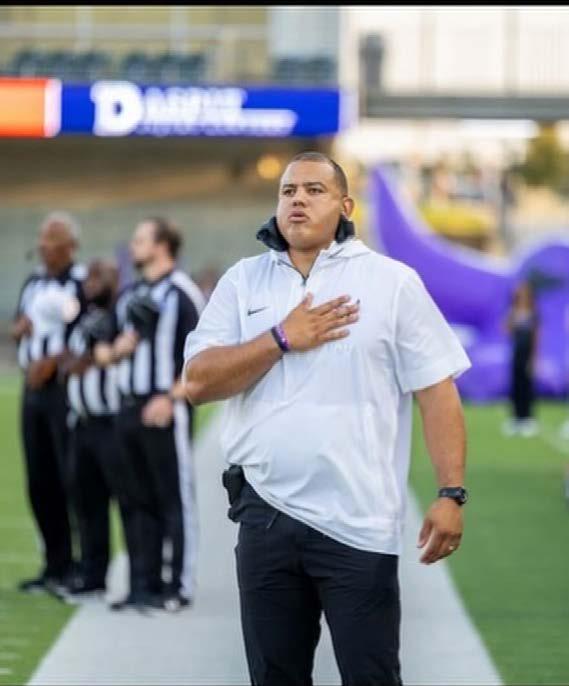





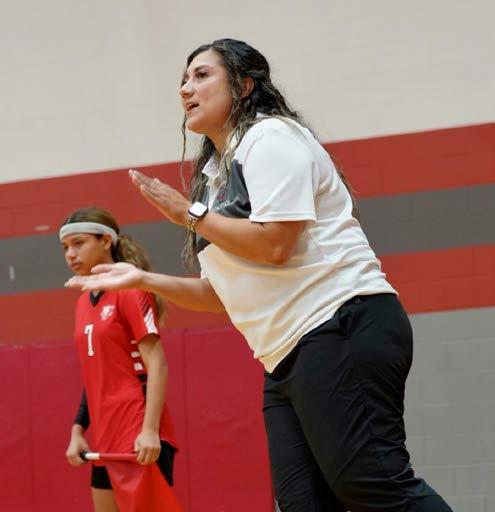

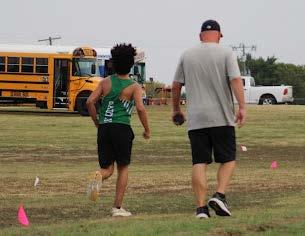
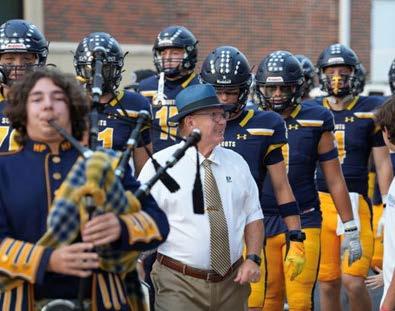

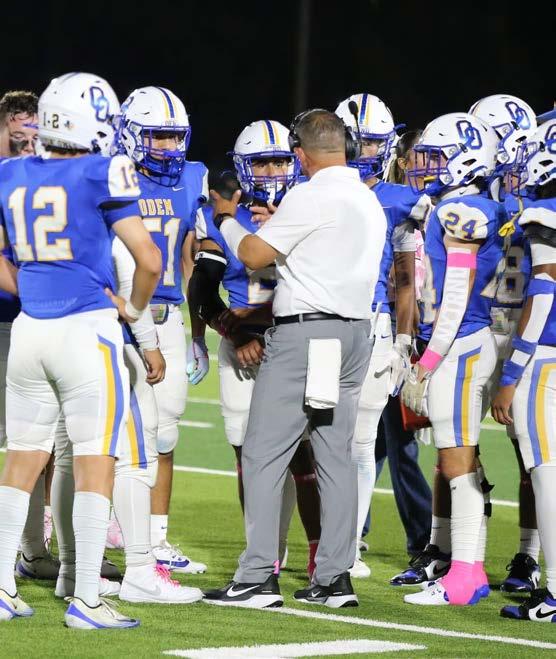
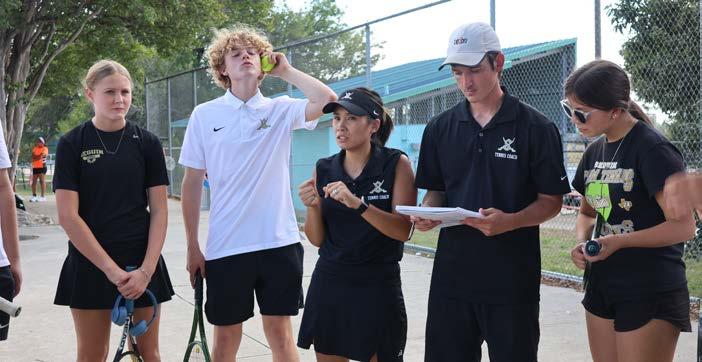
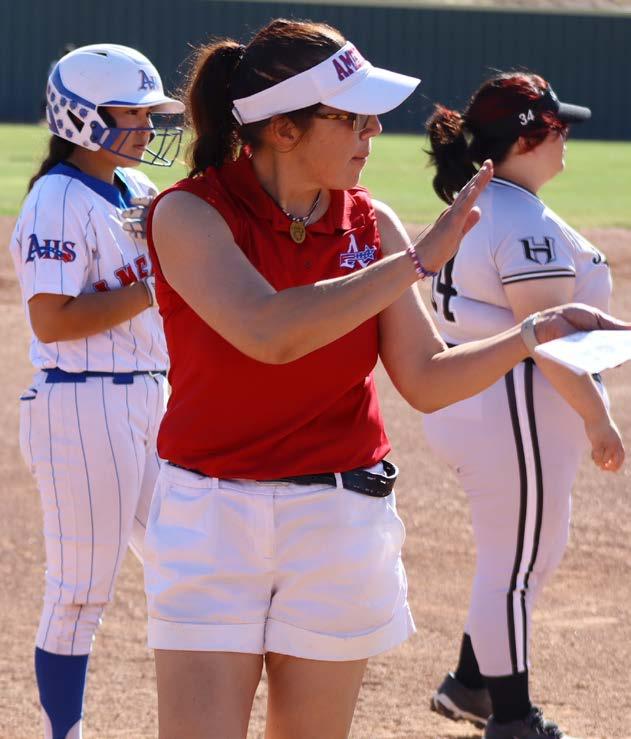

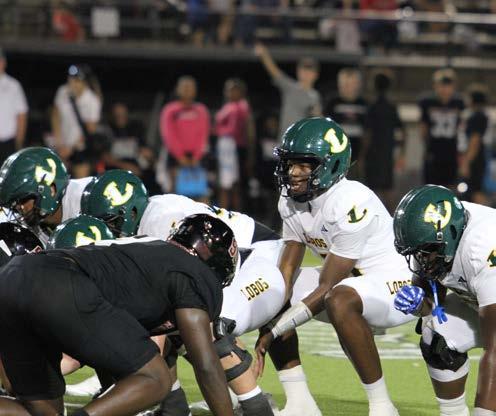

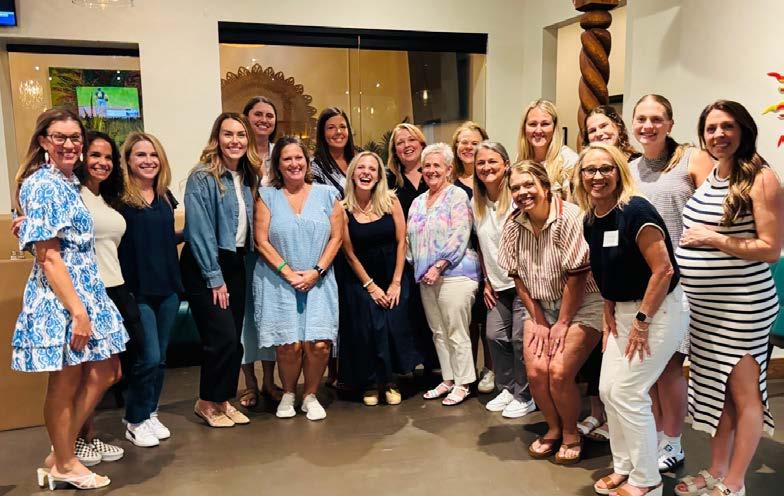


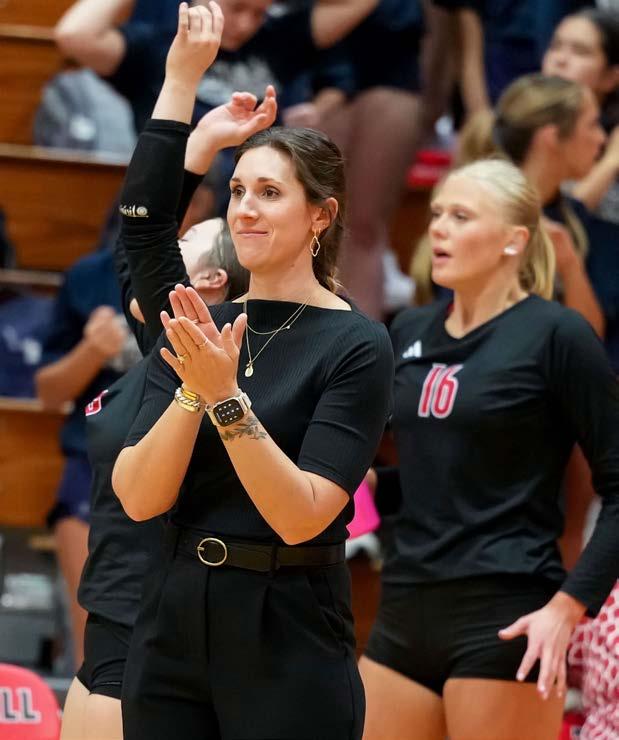
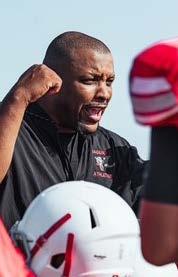
As the popularity of high school girls flag football grows in the United States, the Dallas Cowboys are working with school communities across Texas to provide girls an opportunity to use the game of flag football as a fun and exciting way to be healthy, to learn values taught through sport, and potentially further their education with scholarships to collegiate intitutions now playing flag football at a higher level.


For more information or to discuss partnering with the Dallas Cowboys on this effort, contact YouthFootball@DallasCowboys.net.





Four outstanding organizations, transformed into one powerhouse. And while our name may have changed, everything you count on - great service, uniforms, and gear remain.

YOUR GAME IS ALWAYS GAME ONE


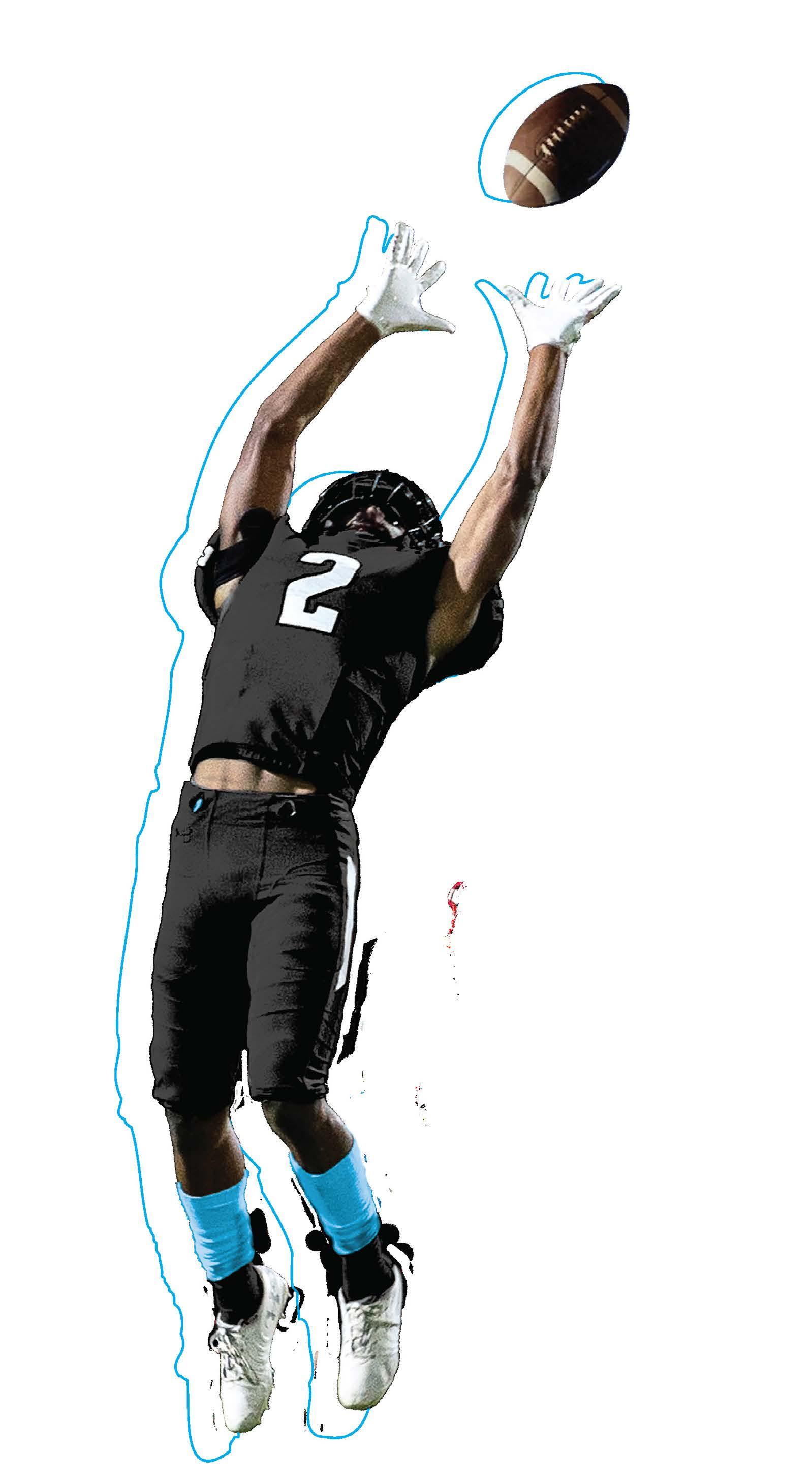

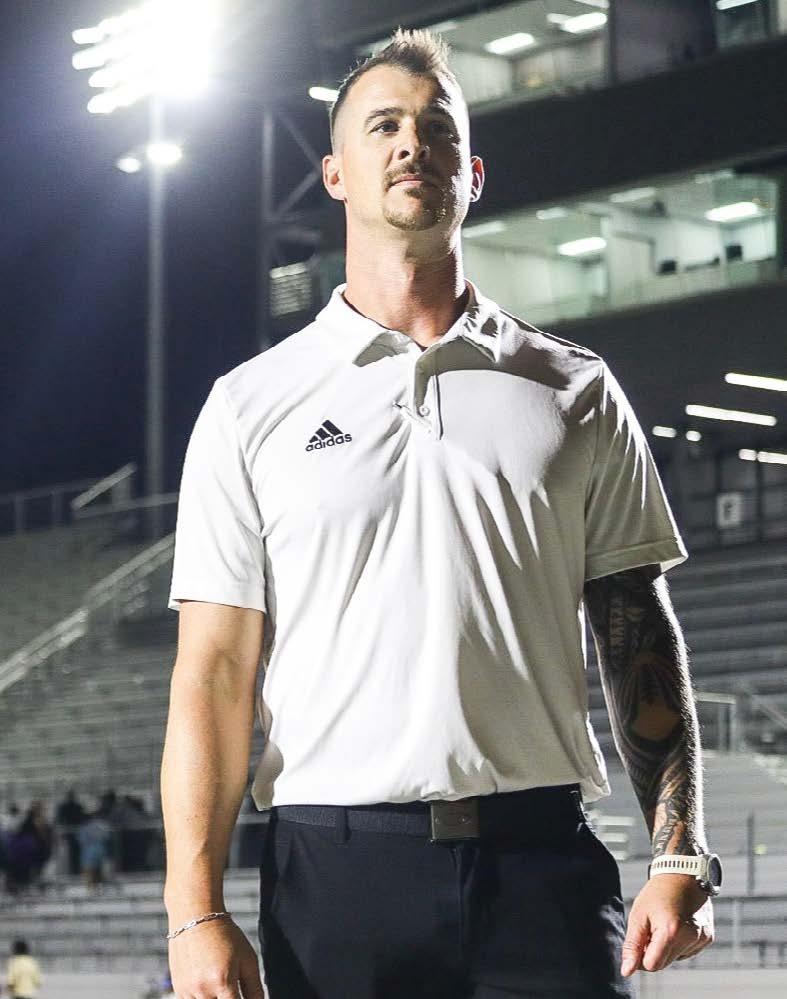

FIVE
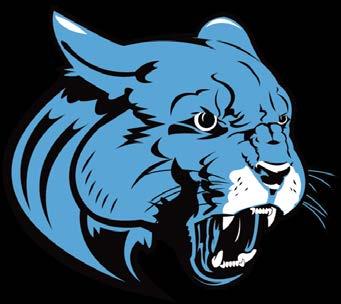
BY JOSH CHRISTIAN (X: @COACHCHRISTIANJ) CO-OFFENSIVE COORDINATOR, JUAN SEGUIN HIGH SCHOOL (ARLINGTON, TX)
I’ll never forget the moment I was trying to break through as a playcaller in Texas high school football. Hungry to lead my own offense, I found myself sitting across from Coach Hal Mumme at the 2023 Air Raid Convention in Waco, Texas. I told him about my frustrations, coming from a strong Wing-T system (that, in hindsight, I completely took for granted) and wanting to run my own show.
The first thing he said?
“Well… the Wing-T is a great offense.”
I nearly fell out of my chair.
That unexpected affirmation sparked something new in me—a fresh creative energy that felt in sync with the bold, inventive spirit that Coach Mumme and Coach Mike Leach pioneered at Iowa Wesleyan years ago. By the end of our conversation, Coach Mumme gave me the encouragement I needed: bet on yourself. Take a job where you can run the offense. Lead with confidence by leaning on the organizational strength of the system.
What followed has been the most eye-opening experience of my career. Here are five things I wish I knew before becoming an “Air Raid” offensive coordinator.
Do yourself a favor: go follow Coach Drew Piscopo on X (formerly Twitter), and look for his #LongLostAirRaidPlays thread. You’ll see everything from triple options to reverses to shovel passes—all stuff Coach Leach used at the highest level. This thread is eye opening to see how Coach Leach had his own style within the Air Raid system. It’s a mindset, a process, a philosophy.
Too many people reduce the Air Raid to just “Mesh”, “6” or “Y-Cross”. But if you really study Coach Leach, you’ll find a system built around creativity, simplicity, and ruthless execution.
“Swing Your Sword” means be you—run your version with confidence.
The blueprint is sound. Stick to the fundamentals, stay disciplined, and coach the heck out of it. The Air Raid works—not because of specific plays, but because of the clarity and consistency in how it’s taught.
Coach Stan Bedwell said it best:
“It’s silly to attack schemes. All have worked. All have failed. It’s about implementation, coaching, and execution.”
Let that sink in.
Every scheme you can name has won titles—from the Single Wing to the West Coast to the Spread. The Air Raid itself was originally built in 21 personnel with a true tight end. Today, I tell my team: the Air Raid is one of the most tight end–friendly systems in the game.
So don’t obsess over what’s trending. You can make any offense explosive using the Air Raid’s methodology, install process, and drill structure. Whether you want to control the clock or run no-huddle, the Air Raid gives you the tools to stay focused and avoid getting lost in the weeds.
That’s a paraphrase from Coach Mumme, and it’s stuck with me.
Yeah, people think the Air Raid just throws the ball 60 times a game. But ask any true Air Raid coach, and they’ll tell you: if the run game is hitting for 8 yards a pop, we’re calling it all night. Trust me I have been there.
It’s not about being stubborn—it’s about being smart. Your job as a playcaller is to take what the defense gives you, force them to cover every blade of grass, and let your kids shine. Sometimes that’s a draw, iso, or gap scheme play—and that’s okay.
In fact, don’t be surprised if your favorite play one day becomes Power from the Coach Rick Darlington version of Unbalanced Single Wing because your kids love it and it has worked for over 100 years. Interestingly enough the Single Wing ball coaches call that play “6”, which is completely different from the Air Raid’s “6” four verticals play. Speaking from experience, it is a really great feeling to run both versions of “6” in the same game and win! How does that happen? By using the Air Raid blueprint and being disciplined with it.
Coach AJ Smith nailed it:
“Your worth as a play caller is how well you can set your quarterback up for success.”
We’re not all blessed with D-I arms walking our halls. That’s reality. So build a system around the quarterback you’ve got, not the one you wish you had.
If you’ve got a gunslinger—awesome, let it fly. If not, tailor your Air Raid install to his strengths. Stick to your core install plan. Avoid overloading your kids with too much scheme. Let them play confident and fast by repping what matters, not cramming a playbook full of cool ideas.
When your kids look sharp, decisive, and in control on game day, that’s not an accident—it’s a reflection of your planning and discipline all week. You are the leader you get to put your team in position to win.
Coach Leach once said:
“Nobody has ever truly stopped the wishbone. People just lost interest in it.”
There’s a message there: great systems don’t stop working—they just stop being trendy.
So don’t fall into the trap of only watching your favorite offenses. Open your mind. Learn from the Wing-T guys, the Triple guys, the Pro-Style guys. Watch how they teach, how they adjust, how they win.
We’re living in the golden age of football resources—YouTube, podcasts, press conferences, Twitter threads, virtual clinics. Dive in. Ask questions. Reach out. Learn from everyone. Teach anyone who is hungry to learn from you and pay it forward.
Because one day, you’ll be the guy in charge—and you’ll need to find a way to Swing Your Sword with whatever you’ve got.
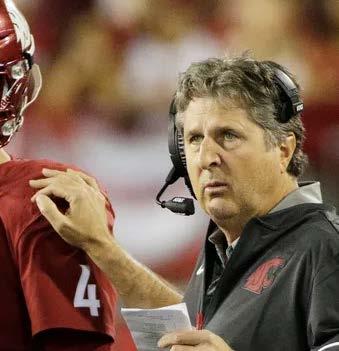
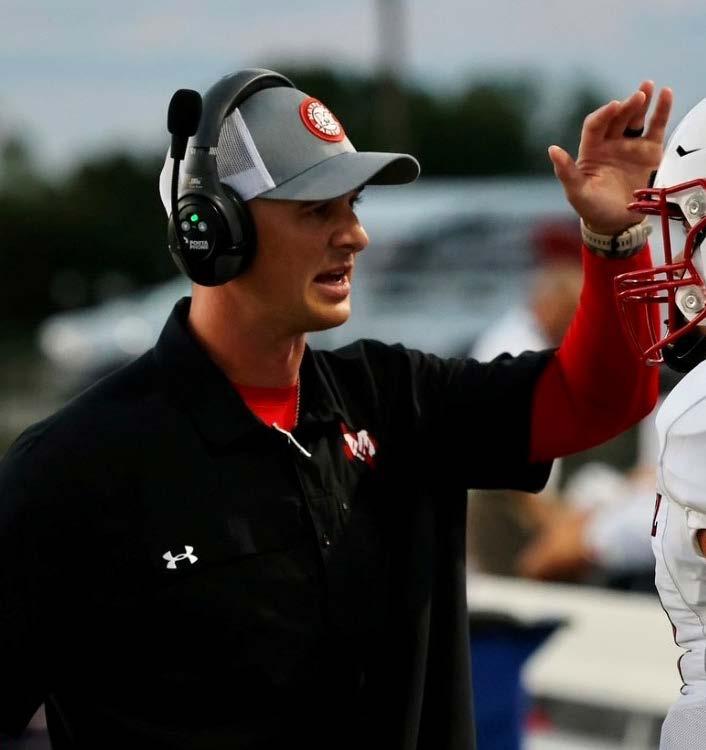
The Air Raid isn’t a list of plays.
It’s a way of thinking. A belief in simplicity, clarity, creativity, and confidence. Coach Mumme and Coach Leach handed us a system that works—but more importantly, they gave us permission to make it our own.
So study hard. Coach harder. And whatever you do, Swing Your Sword.
KB3 SPORTS APP has allowed us to streamline our stats & maxes for inseason & offseason as well as given us the ability to promote our players across the country.
James Clancy HFC, Klein Cain HS
MAXES & MEASURABLES can be entered by a player or coach and will be added to a player’s profile page.
TEAM PROFILE PAGE
Your teams’ profile page is publicly accessible to parents, players, media and recruiters with links to each player’s profile page.
PLAYER TRACKING
Download a Team Stat File to keep track of team stats by player or team totals.
Download a Game Summary File to view play-by-play game recap.
Automatically generate a Player Stat File to view per game and cumulative player stats as well as in-season and off-season maxes and measurables.
RECRUITING
College coaches can access your players test scores, stats, maxes & measurables.
College Coaches can DM with coaches and players via our IN-APP MESSAGING.
Get Started!
Download the free app for Android or Apple, join now!







BY STACEY HYDE wife of don hyde, head football coach/athletic director
waco la vega high school

The first time I stood under the glow of the Friday night lights; I did not realize that those same lights would illuminate the next twenty-something years of my life. I was young, proud, and in love — with a man, whose passion for football was as deep as his love for me. What I did not fully understand then was that by marrying him, I was not just marrying a man. I was marrying a lifestyle — one filled with long hours, emotional highs and lows, and countless sacrifices. I was joining a team I had not trained for, learning the playbook as I went, and discovering that the life of a coach’s wife was one of both incredible joy and quiet endurance.
Those early years were equal parts thrilling and exhausting. There was a certain romance in the chaos — late-night game film sessions, spontaneous dinners, and the sound of whistles and cleats becoming part of our everyday soundtrack. I remember sitting in the bleachers with butterflies in my stomach before every kickoff, my heart pounding as if I were the one calling the plays. After each game — win or lose — the kids and I would hurriedly make our way down to the field, eager to hug his neck and see his face. If they had won, the glow in his eyes could light up the night; if they had lost, I could feel the weight of disappointment hanging over him like a heavy coat.
We were newly married, learning to build a life around an unpredictable schedule. Date nights were replaced with film sessions and scouting trips. At first, I thought I could balance it all — being the supportive wife, the ever-present cheerleader, the hostess for
gatherings, the quiet comfort after a tough loss. I quickly learned, though, that the life of a coach’s wife was one of constant adaptations. Game schedules replaced family calendars. Vacations, weddings, and births were all planned around practices and games. Even the weekends were not ours.
But back then, it was still exciting. Every new season brought fresh hope, fresh players to care about, and new families to bond with. There was a rhythm to it all – a pulse of community that made you feel part of something bigger than yourself.
As the years rolled on, that excitement was tempered by reality. Coaching was not just a job it was an all-consuming calling. There were nights I fell asleep alone, the sound of the garage door creaking open long after midnight as he returned from breaking down film or meeting with assistants. There were sometimes family dinners where one chair at the table sat empty, children’s events that had to be attended without him, and holidays that were cut short by playoff games.
Meanwhile, behind every win was the invisible work at home — managing the house, comforting the kids when the pressure got too high and keeping faith when the critics were loud. I learned to develop thick skin and a tender heart at the same time -- to protect my husband, my children, and my own peace. Because when you are a coach’s wife, everyone has an opinion about your husband’s play calls, his leadership, his tone, even his character; and sometimes, when those opinions turned cruel, they cut deep.
Raising our kids in that environment came with its own set of challenges. They loved their dad fiercely, but they also missed him fiercely. There were moments when they would ask, “Will Daddy be home to eat supper with us tonight?”, and I would have to answer honestly, “Probably not.” But as they grew older, they came to understand the meaning of dedication and sacrifice. They learned resilience by watching their father lead, and compassion by watching me hold it all together.

There were also moments of deep loneliness -when I questioned if anyone outside the coaching world could truly understand what it meant to live this life. You celebrate the wins quietly because there is always another game to prepare for; and you shoulder the losses silently, because the man you love is already carrying enough weight. Yet through it all, I learned something profound about endurance; about love that does not demand the spotlight; about strength that does not always roar but sometimes simply whispers, “Keep going”.
Despite the struggles, there was so much beauty woven through the years-often in the most unexpected places. There is nothing quite like watching a group of young men grow under your husband’s guidance. Seeing the boy who struggled in school graduate because of the lessons learned on that field. Hearing former players call years later simply to say, “Coach changed my life.” Those moments remind you that the sacrifices were not in vain. They were the foundation of something meaningful.
Football is more than a game – it is a ministry, it is a classroom, it is a family.
I cannot count the number of times we opened our home to players who needed a meal, a listening ear, or just a safe place to be themselves. They became part of our extended family — young men who, in their own way, helped to remind us why the sacrifices mattered.
On those magical nights, when everything clicked – the plays flowed, the crowd roared, and victory felt inevitable – my heart swelled with pride. Not just pride in the team or my husband, but in us. Because behind every coach is a family that sacrifices quietly, believes steadfastly, and loves unconditionally.
Looking back, I realize how much this journey shaped me — not just as a wife, but as a woman. I’ve learned the art of patience – of trusting the process, even when the outcome is uncertain. I have learned grace under pressure – the ability to smile through exhaustion, and to comfort others even when I needed comforting myself. I have learned loyalty –to a man, to a mission, to a calling that demanded our all. I’ve learned that love is not always loud; sometimes it is a quiet commitment to keep showing up, even when it is hard.
I have also learned that football mirrors life. There are seasons of victory and seasons of struggle, moments when you feel unstoppable, and moments

when you are brought to your knees. No matter what the scoreboard says, you keep showing up, learning, growing, and believing. What remains is the legacy of love, mentorship, and resilience. Football has given me lifelong friendships, unforgettable memories, and a front-row seat to watch my husband live his calling. It gave our family purpose — and it gave me pride in knowing that my role, though often behind the scenes, mattered just as much.
Now, as I sit in the stands and watch yet another generation take the field, I see the game differently. I watch with a quiet smile and a warm heart throughout every play. I see the younger wives with toddlers on their hips, cheering with anxious hearts, full of hope, and eyes that have not yet learned the weight of the long seasons ahead as they live that same rollercoaster I once rode.
I want to tell them: cherish it all. The wins and the losses, the late nights, the lonely dinners, the community, the chaos, the laughter, and the lessons; because one day, you will look back and realize, as I have, that it was not just his coaching career. It was our life.

The scoreboard may not always show victory, but the life we built — full of laughter, tears, perseverance, and pride — is proof that we won something far greater. After all these years, I have learned that being a football coach’s wife is not just about standing on the sidelines. It is about living a life of purpose, resilience, and grace — a life that taught me that true success is not measured by trophies, but by the faith and love that will remain long after that final whistle blows.







BY PAUL WILLINGHAM
COACH - ENNIS HIGH SCHOOL
Effort on the football field is THE most important quality of a great high school football player. Effort is important for all players both offensively, defensively and on special teams. Effort is the one thing that ALL players can contribute regardless of athletic ability. We demand effort on every play both in games and in practice. When the ball is thrown in the deep 1/3 of the field, we expect the defensive line, having rushed on a pass play, to run to the football. We know that only good things happen when we give that kind of effort, and we eliminate the regrets of not giving great effort. I tell them about my high school playing days and the regrets that I have to live with today. I would pursue the football as a middle linebacker and then would slow down assuming that my teammates would complete the tackle. I didn’t continue to the football on plays where I was not the primary tackler. I slowed down before the referee’s whistle. It is my one regret about playing high school football.
So how do we persuade our player to give great effort? We grade them. Every play on Friday night is graded by their position coach. Offense, defense and special teams’ players are graded on the effort they give on every play. We grade, and correct mistakes, count the tackles, pancakes, interceptions and explosive plays like everyone does. We dedicate a chart in the hallway, for all to see, that has a grade solely for each player’s effort. On the chart we do not include corrections, missed tackles, missed blocks, missed assignments, dropped balls, big hits, great plays or fumbles. This grade is ONLY for EFFORT on all the plays they were in on. Some players may have 100 plays if they start on defense, play special teams and maybe have a small role of offense. If a player does not give his very best effort on a play, he gets an
“effort”. Though it is subjective and determined by the position coach’s opinion, it is not debatable. The coach will keep track of the plays where the player did not give great effort so that the player can be shown how he could have done better. Defensively, most efforts are given on plays away from where the ball is, or a pass downfield. We give an “effort” to any player who is not making a valid attempt at pursuing the ball. When watching opponent video, we often times as coaches will point out to our players how the other team is not giving great effort on plays. Players that could have pursued to the ball better and did not. Effort is a choice. It takes no athletic ability to give great effort. We repeat that daily to our players.
A chart is posted in our football fieldhouse hallway that has every player's name on it. At the top of the column is the opponent we played that week. Players can see how many “efforts” they received for that game. We color code the percentage of “good” plays. On the chart we will display for example: John Doe 6/72 92%. John played 72 plays (offense, defense and/or special teams plays). He had six “efforts” (not good) for a percentage of 92 % good effort. We give colors so that it gives a quick visual for everyone to see. Black is 100 to 95%, Red is 94 to 90%, Blue is 89 to 85%, and yellow is below 85%. Players can quickly and easily determine their graded effort from the previous game given to them and their teammates.
After practice and conditioning on Mondays, we, as a defense, will gather in a circle. We allow the players to take their helmets and shoulder pads off. The coach will point at a player in the circle and the player will step up into the circle and say their name,
number and how many “efforts” they had in the previous Friday’s game. After the players announce the number of efforts they received, the coach will tell the group to “get their feet hot”, which means to start jogging in place. The coach will then say “down”, and each player will hit their chests to the ground and get up quickly without touching a knee to assist them getting up. We call them “up and downs”. After the group does up and downs according to how many “efforts” that player announced, the coach will point to the next player. The group will do this until all players have announced to their teammates how many efforts they had. It is not unusual for the group to have over 80 efforts as a defensive team the first game of the season. The younger ones find out quickly what an effort is and how to avoid receiving an effort. The “returners” usually have the fewest number of efforts because of their previous years’ experience. It is very humbling to stand in front of all your teammates and announce how much effort you gave in previous game. In 2020, the TEAM had 81 total efforts the first game, 22 the second week, and 12 the third week, followed by 36, 28, 33, 14, 14, and 11. Many weeks the defense had ALL BLACK!! Your kids will respond to your expectations. They don’t want to have any efforts and let their guys down. They want to play hard for each other.
Effort is addressed at practice as well. While viewing practice video each day, coaches will mark the players on the video not giving great effort and send the clips out to his position group or to the entire team. We call these “not our standard”. Though there is no formal accountability, it does influence great effort during practice. Nobody wants to be labeled at practice as playing below our standards.
One year, after first implementing this grading system, we had a really bad game as far as efforts. It was easily over 100. We gathered up as a team instead of as an offensive and defensive unit. Coming to the last man, the players were pretty exhausted. Breathing heavily and totally exhausted, he stepped out and said, “Lovie Williams, number 99, 15 efforts.” The player beside him said, “Dang, Lovie!!”, and the others about passed out as they moaned and groaned. Today, we do our efforts separately by offense and defense.

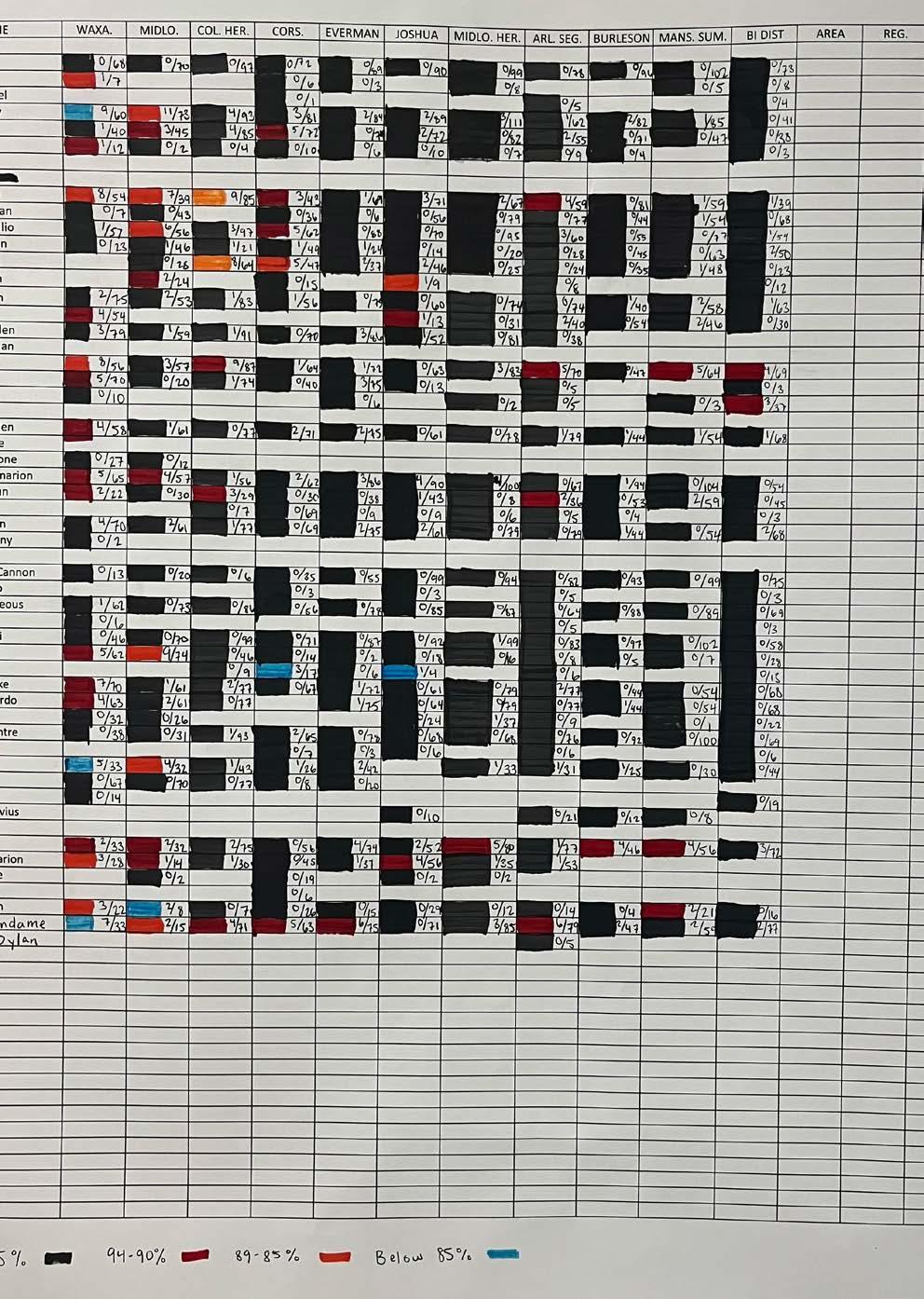
Fifty years ago, Sam Walton handpicked the town of Mount Pleasant for its first Texas-based Walmar t. It’s not just about building stores and clubs it’s about investing in associates, backing Texas manufacturing, par tnering with teachers, suppor ting local businesses and giving back to communities from El Paso to Texarkana, Amarillo to Brownsville and more than 500 other locations in between.
Learn how we’re making a difference in the Lone Star State at Walmar t.com/Texas.



By: Raymond Tucker D.S.M., CFSC, CSCS * D, EXOS - XPS, FMS, USATF, USAW
Associate Professor of Kinesiology
Department Chair Kinesiology, Health
Studies,
Counseling and Nursing
College of Education and Health Professions, University of Houston Victoria


As athletes develop from pre-athletics through middle to high school athletic programs, longterm athletic development is a process that requires patience and time from the coach. It should be carefully managed for each athlete in the program. Rushing this process will not develop a robust athlete and should be avoided at all costs. According to Brendon Rearick from Michael Boyle, Strength and Conditioning, your program should slow cook your clients (athletes) like a crock pot and not zap them like a microwave for quick gains. Your pre-athletic and middle school strength and conditioning programs lay the groundwork for the success of your high school athletic program. These programs should allow male and female athletes to participate in a strength and conditioning program overseen by a certified strength and conditioning professional if the athletic program's goal is long-term athletic development.
Because so many athletes participate in a strength and conditioning program during the athletic period or after school, some athletic programs adopt a "one size fits all" or "cookie
cutter" strength and conditioning program to save time. This strategy may be advantageous if the strength and conditioning professional has developed a regression and progression exercise list to reduce or increase the exercise demands or movement patterns. For example, if an athlete can't perform the hang clean with the correct technique, what exercise would the strength and conditioning professional prescribe in the place of the hang clean to get the same performance outcome until the athlete has mastered the correct technique.
One of the requirements for long-term athletic development is to identify the differences between an athlete's biological and chronological age. For example, two athletes who are both 13 years old chronologically may be in various stages of their development. An athlete who is less mature and has developmental delays at the same age will have less body weight and muscle mass. An athlete's strength, speed, and power will be limited by this lack of body weight and muscle mass, making it more challenging to perform specific weight lifting exercises and explosive
movement patterns. Coaches sometimes make the mistake of prioritizing these mature athletes and ignoring the underdeveloped athletes, leading to underdeveloped athletes who become discouraged and leave the athletic program. Athletes still developing will mature later and hold the key to the athletic program's ultimate success. The following steps should be taken into consideration by the strength and conditioning professional in the long-term development of the athlete.
1. Before having your athletes perform any weight room exercises or movement patterns, use a screening tool to see what movements they can perform correctly. The Functional Movement Screen is an excellent tool for determining whether your athletes have any asymmetries between the left and right sides of the body, as well as any weaknesses that may be affecting their performance.
2. What warm-up routine will you employ to ensure that your athletes' flexibility and mobility allow them to move actively through a range of motion?

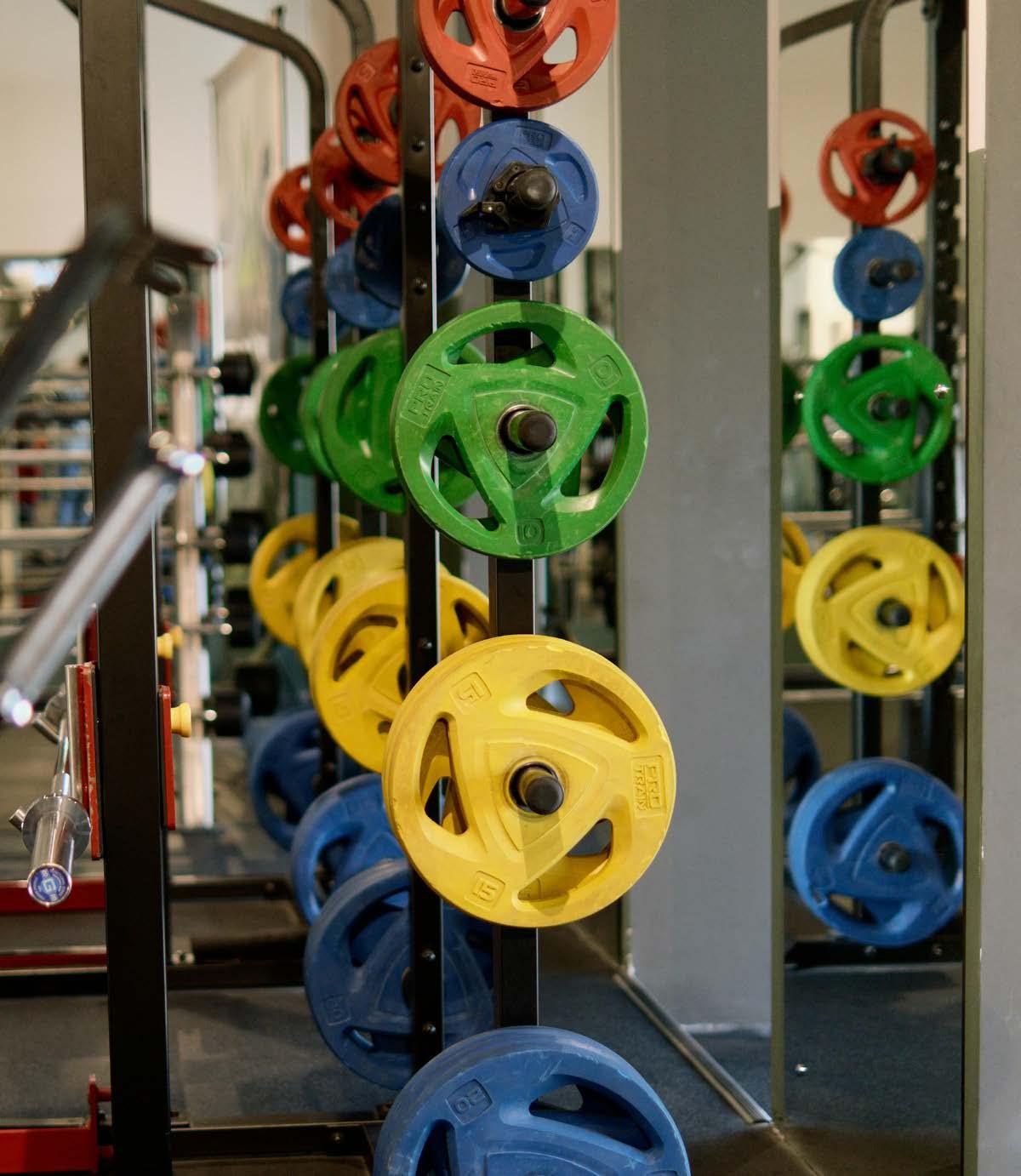
3. What multi-joint and weightlifting exercises will you include in your program at each level, and how will you teach them to ensure mastery before moving on to more advanced exercises? How would you teach the proper jumping and landing techniques used in linear and lateral lower body plyometrics and throwing, catching, and passing exercises used in upper-body plyometrics?
4. How will you teach the correct body position and proper mechanics for acceleration, maximum velocity sprinting, and multidirectional speed?
5. Before prescribing any exercise or movement pattern to your athletes, determine their training age. For example, if you use the hang clean in your program and have an athlete who has never performed this exercise, they will have a training age of 0, indicating that they have no experience performing this exercise. This athlete should regress to learn the proper technique with a PVC pipe and then progress to a bar before adding an external load.
6. Put your athletes in groups based on their ability level and training age so they can learn and develop confidence in their abilities. It's simple to put them in groups with more advanced athletes in the hopes that the advanced athletes will take a leadership role and coach them, but in some cases, these athletes are bullied and picked on because they don't meet the advanced athletes' standards. Allow your athletes to train while you serve as the coach.
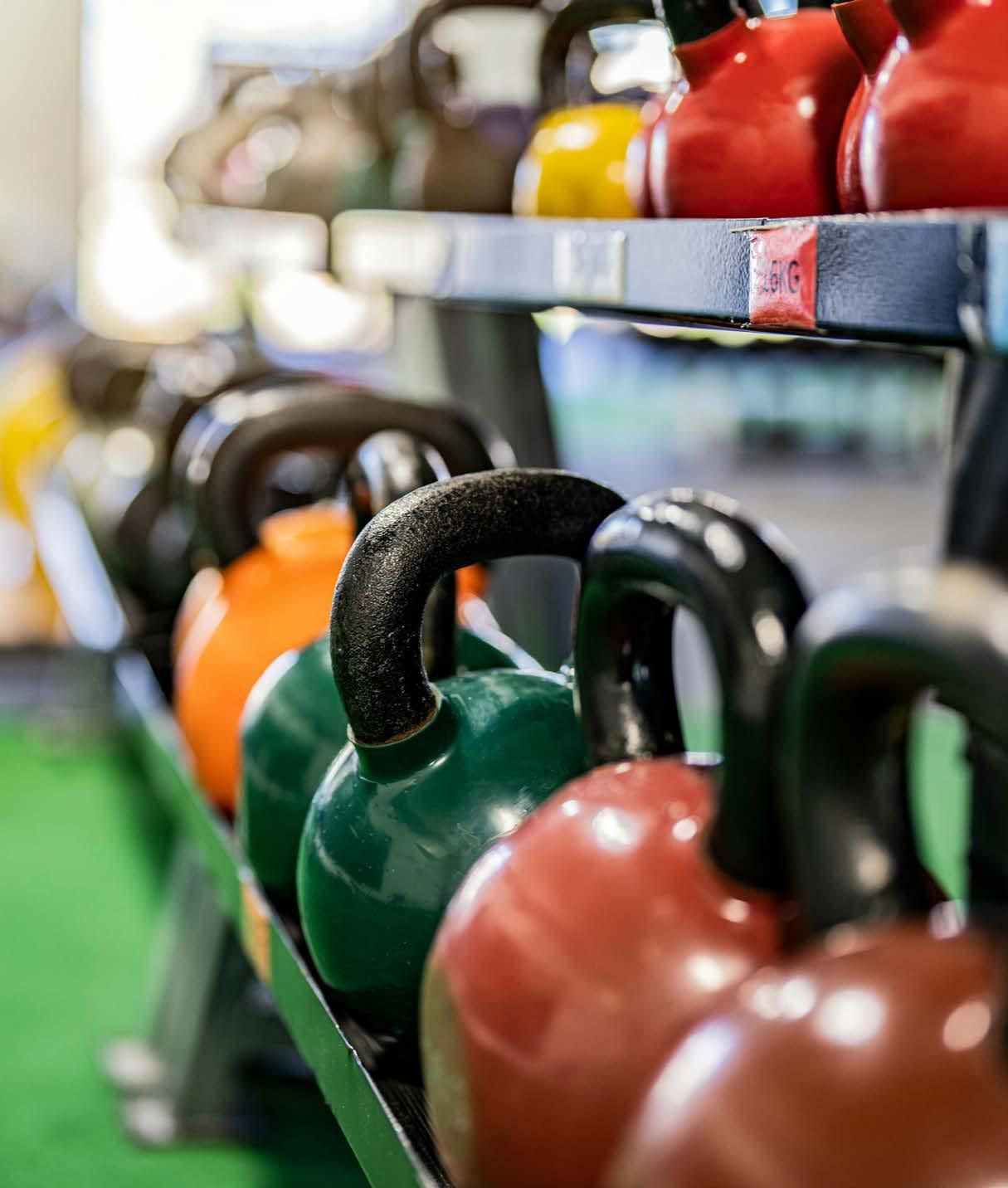
7. Meet with your parents and explain your strength and conditioning program and the importance of recovery. Inform your parents that more is not always better and that they should not lift weights at home or hire a personal trainer. Overtraining, a lack of recovery, and overuse injuries will result. What your athletes do at home and in their spare time is just as important in their training program at school.
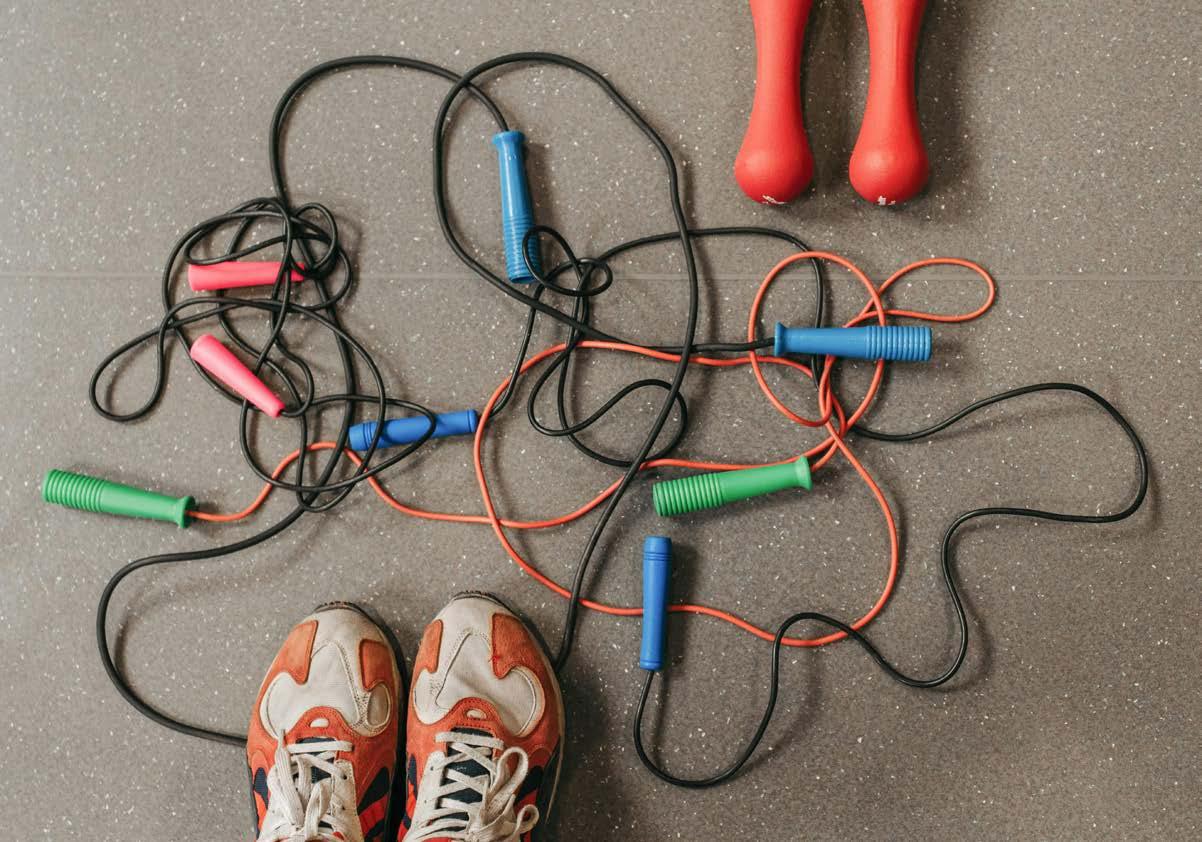
8. Before creating your program, consult with your sports coaches. You want to ensure that whatever you do in your strength and conditioning program is in line with the goals of the head coach for that sport. You also want to ensure that the program complements rather than competes with the upcoming practice or game. If a basketball coach wants to condition their players after practice or do a lot of jumping, you don't have to do the same in your strength and conditioning program.
9. Making someone puke is simple; improving someone is a skill. There is a significant difference between discomfort and pain, and coaches should listen to their athletes before pushing them beyond this point. The "no pain, no gain" philosophy is antiquated and should never be applied to any athlete's training.
The strength and conditioning professional's goal is not to turn your athletes into strongmen, powerlifters, bodybuilders, cross-fitters, or Olympic lifters. The goal should be to develop a strong and resilient athlete with good mobility, efficient movement patterns, the ability to convert strength into power when needed to jump, accelerate into a sprint, and the appropriate motor control and movement patterns to accelerate, decelerate, and change direction, all of which are required for team sport athletes.


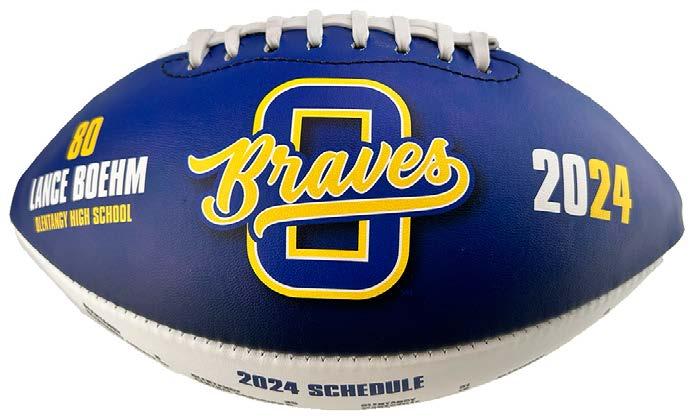

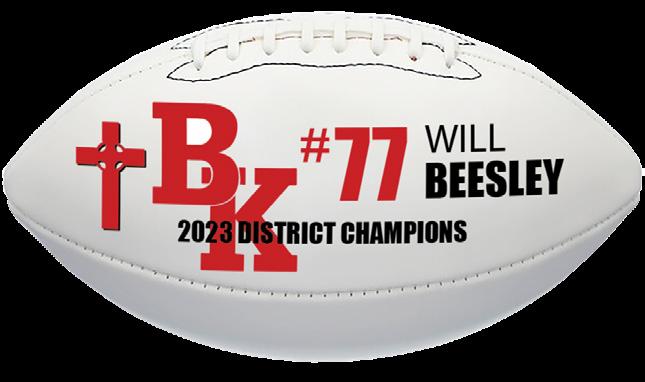
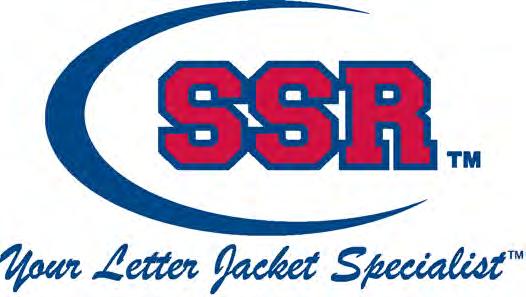

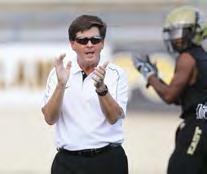

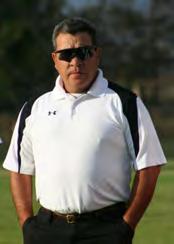






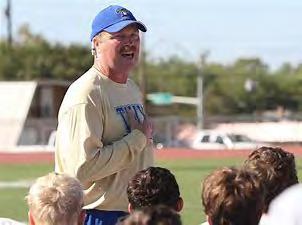

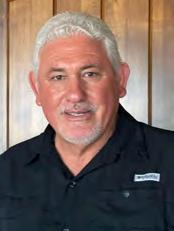

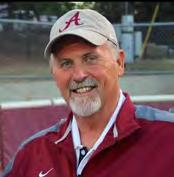





Abilene - Volleyball
AC Jones - Football
Alto - Football
Antonian - Football
Aransas Pass - Football
Athens - Football
Bandera - Football
Bellville - Volleyball
Big Spring - Football
Borger - Football
Brock - Football
Byron Nelson - Football
Caldwell - Football
Calhoun - Football
Cameron Yoe - Football
Canadian - Football
Carroll - Football
Center - Football
Columbus - Volleyball
Coronado - Football
Crane - Football
Cuero - Football
Cuero - Football
Danville - Football
Davenport - Football
Denton Ryan - Football
Denver City - Football
Diboll - Football
Donna North - Football
East Bernard - Volleyball
East Central - Football
Economedes - Football
Edinburg North - Football
El Campo - Football
THANK YOU to all of the schools who reported participation so far in this fall's "Our Day to Shine" Campaign!
With support from our coaches and their communities, the THSCA is able to assist athletes & coaches beyond what our current benefit policies will allow.
Your donations, just through November 1st have totaled over $42,000!
El Paso - Football
Episcopal - Football
Eustace - Football
Floresville - Football
Flower Mound - Football
Forney - Football
Forsan - Football
Fredericksburg - Football
Garland - Football
Greenwood - Football
Greenwood - Football
Haltom - Football
Harlan - Football
Harlingen - Football
Hemphill - Volleyball
Holliday - Football
Horn - Football
Howe - Football
Ingleside - Football
Iola - Volleyball
Iowa Park - Football
Jarrell - Football*
Jasper - Volleyball
Jasper - Football
Jim Ned - Football
JJ Pearce - Football
John Jay - Football
Justin F Kimball - Football
Katy - Football
Kermit - Football
Kilgore - Football
King - Football
Kirbyville - Volleyball
La Grange - Football
La Joya - Football
La Vega - Football
Lago Vista - Football
Lindale - Football
Lindale - Football
Little Cypress- Mauriceville - Football*
Littlefield - Football
Lone Star - Football
Longview - Football
Lubbock Cooper - Football
Lubbock-Cooper - Football
Lytle - Football
Madisonville - Football
Marble Falls - Football
Marshall - Football
McAllen - Football
Midland - Football
Midland - Volleyball
Midland Lee - Football
Mission - Football
Monahans - Football
Natalia - Football
New Braunfels - Football
North Shore - Football
Northwest - Football
Odessa - Football
Orangefield - Football
Perryton - Football
Pine Tree - Football
Plainview - Football
Port Neches-Groves - Football
Porter Early College - Football
Post - Football
Ray - Football*
Raymondville Early College - Football
Rockport-Fulton - Football
Roscoe - Football
Rowlett - Football
Royal - Football
Santa Fe - Football
Sharyland - Football
Sharyland Pioneer - Football
Sinton - Football
Snyder - Football
Stephenville - Football
Stevens - Football
Stockdale - Football
Stratford - Football
Sulphur Springs - Football
Tascosa - Football
Texas - Football*
Timber Creek - Football
Tivy - Football
Troup - Football
Troy - Football*
Tuloso-Midway - Football
Waco - Football
West Mesquite - Football
Westside - Football
Wink - Football
Woodsboro - Football
Yorktown - Football
Wink HS - Football
Wylie HS - Football
Yoakum HS - Volleyball
*Programs participating in Multiple Our Day to Shine Events.